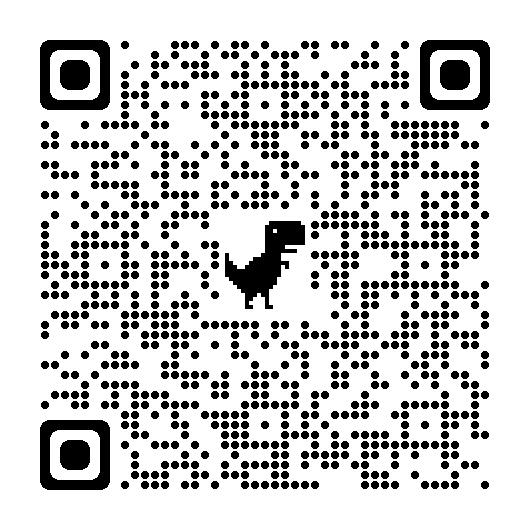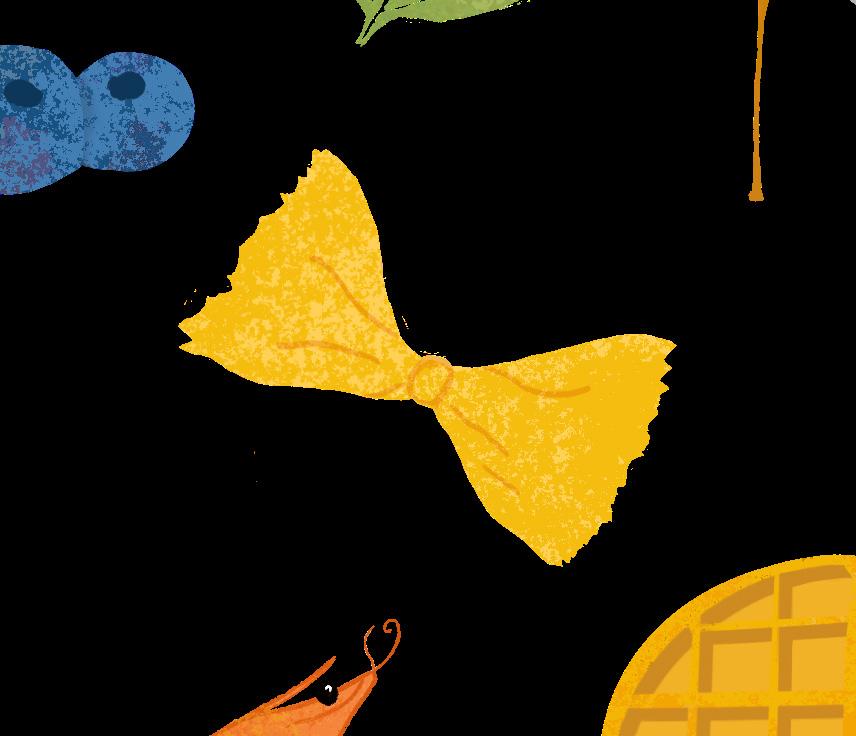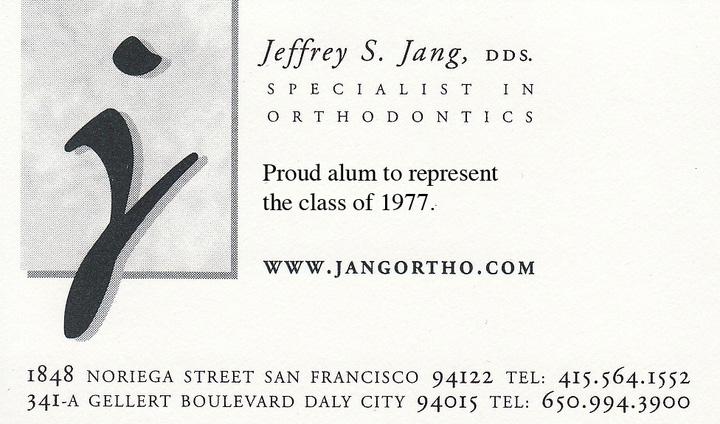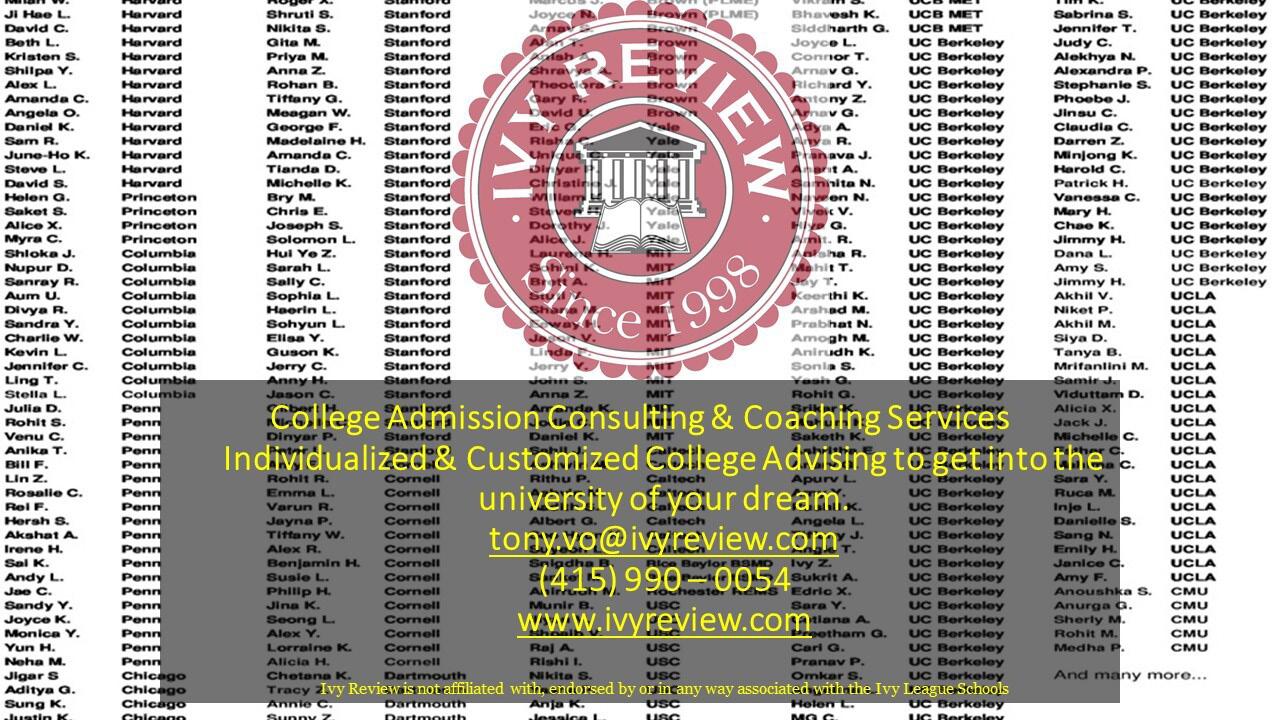BREAKING FROM THE LIBERAL HOLD





 By Kylie Chau
By Kylie Chau
District representatives came to hear student demands. Will they take action?
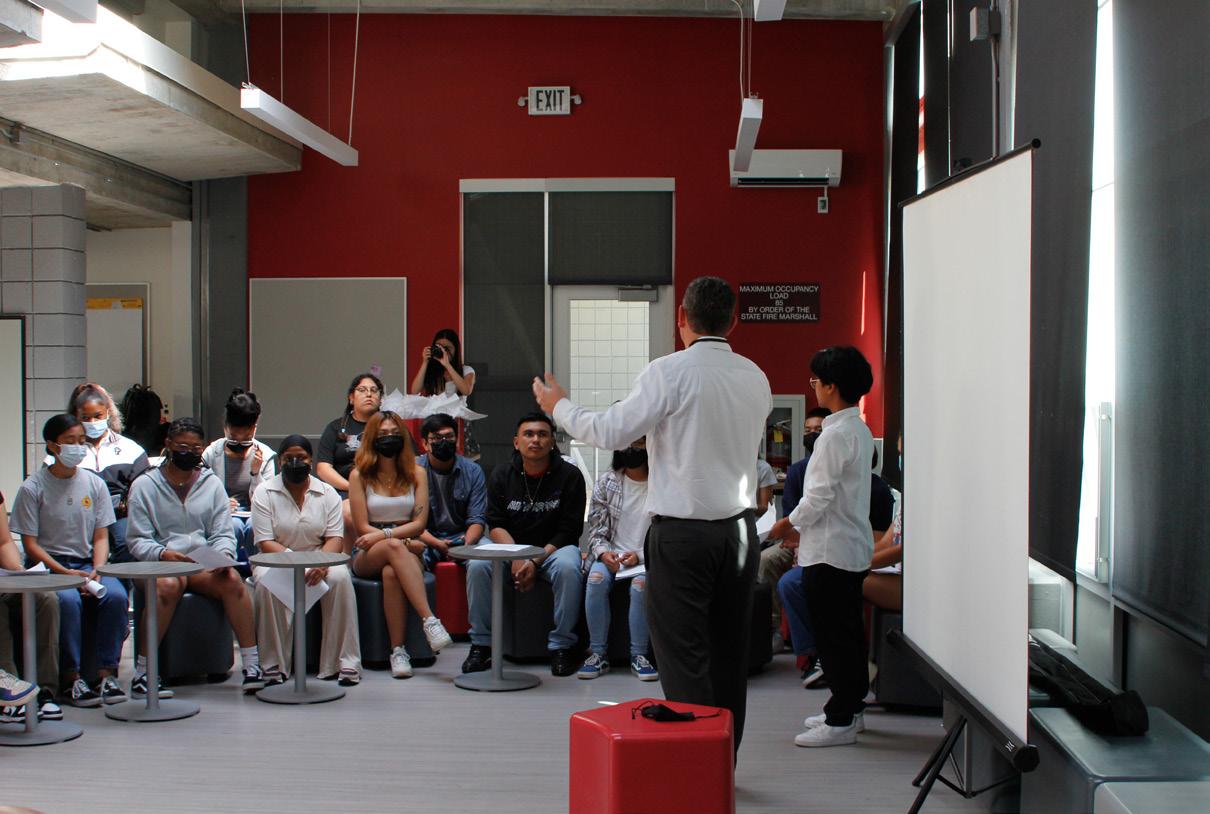 By Kelcie Lee
By Kelcie Lee





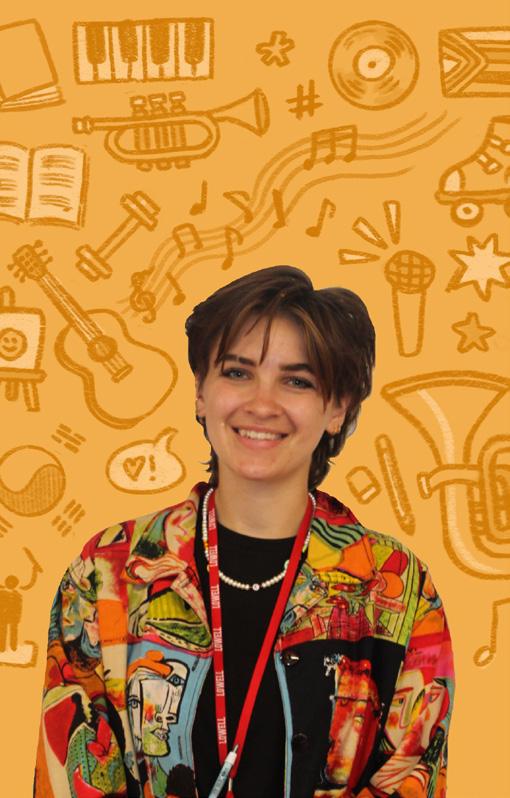


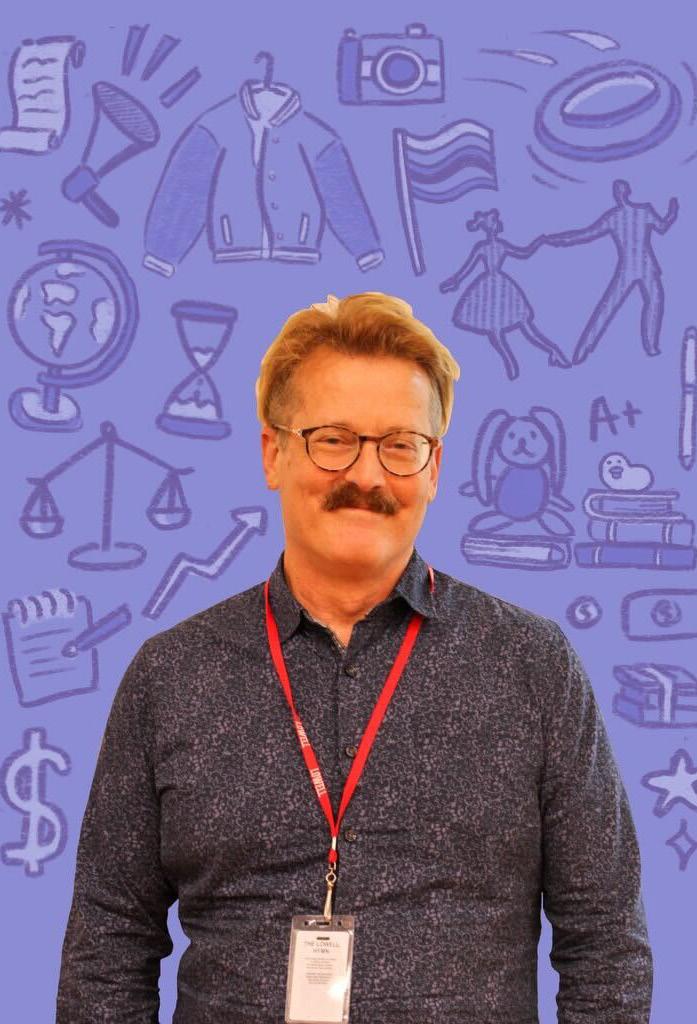
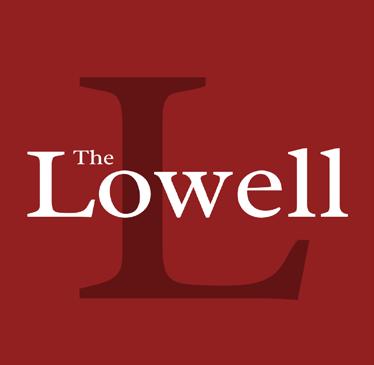
es. After weeks of delay, reg teachers distributed lan yards to students. However, the stu dents’ response was to completely ignore the policy, most without fear of consequences.The lanyard policy should be rescinded because lanyards aren’t consistently worn, don’t help bol ster campus security or safety, and are detrimental to students’ comfort and self-confidence.
At first, it seemed that lanyards were a concrete security measure that would be strictly mandated. Following lanyard distribution, enforcement was said to start the Monday after Picture Makeup Day, coined “Phase Three,” with Phase One and Two being the distribution of lanyards to teachers and students. Failure to wear a lanyard would result in being sent home or to the main office to print a new one for a five dollar fee. However, the day of the supposed start of Phase Three, lanyards hung around the necks of only a few students, specks of red in a sea of nor mal, lanyard-free clothing.
A reason for this is that stu dents are uncomfortable wearing their IDs in the halls. IDs have students’ full name, grade, registry, and ID num ber, which is personal information that many people are uncomfortable
the rest of the year, an experi ence that would conflict with requiring IDs to be out. The lanyards them selves are also an eyesore: De spite Lowell Fashion Club discussing ways to make lanyards more fashion able, there’s really no way to pull off a bright red lanyard showing off your bright orange school picture. Anger and annoyance over receiving the lanyards led students to come up with creative ways to bend the rules. Just two hours after lanyards were distributed in reg, students were fill ing the clear sleeves with cash, stick ers, drawings, and even their driver’s license. Jose Reyes flexed his $30 and easy breezy tattoo, while Au drey Duane aired her beautiful self portrait. Others wore their lanyards hanging out of their pockets, almost completely hidden with just a few
yards were actually being worn, which was rare, they were not being used for
ment” is even an exaggeration; the confusion that ensued after lanyards were distributed wasn’t regulated in the slightest. If the requirement couldn’t even be enforced, why would they be an effective safety tactic? Asking a small handful of adults to monitor and regu late thousands of high schoolers is an impossible task. When security guards and teachers attempt to enforce the lanyards, they often inconsistently pick random students in the hallway. Lan yards are an all-or-nothing effort; if they’re used to identify outsiders who don’t attend Lowell, all Lowell students must be wearing one. Since that isn’t the case, it’s pointless to call out a few ran dom students who aren’t wearing their lanyards, or continue to urge students around lan yards. Barring a dramatic shift in attitude, stu dents won’t feel pressure to obey policies sur rounding lan yards, making the policy itself useless.
Yes, student safety is import ant, but lanyards are a rudimenta ry attempt to fix a deeper issue of secu rity at Lowell. They are not worn now, and they won’t be in the future. In order to focus time and energy elsewhere, the “requirement” of lanyards for students should be rescinded.
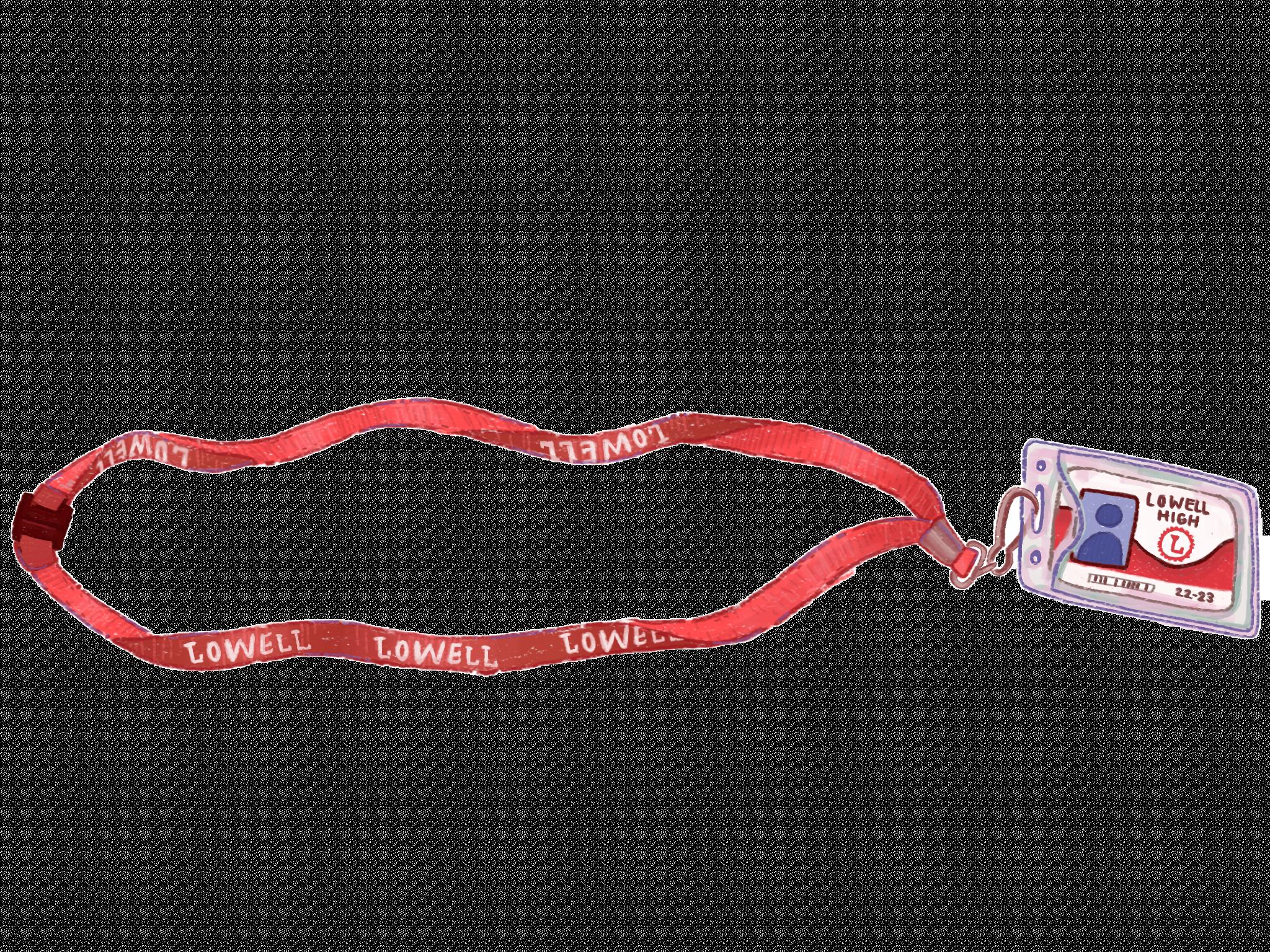


No one wants a photo that they’re not confident in on display to thousands of people.
Lanyards aren’t consistently worn, don’t help bolster campus security or safety, and are detrimental to students’ comfort and self-confidence.
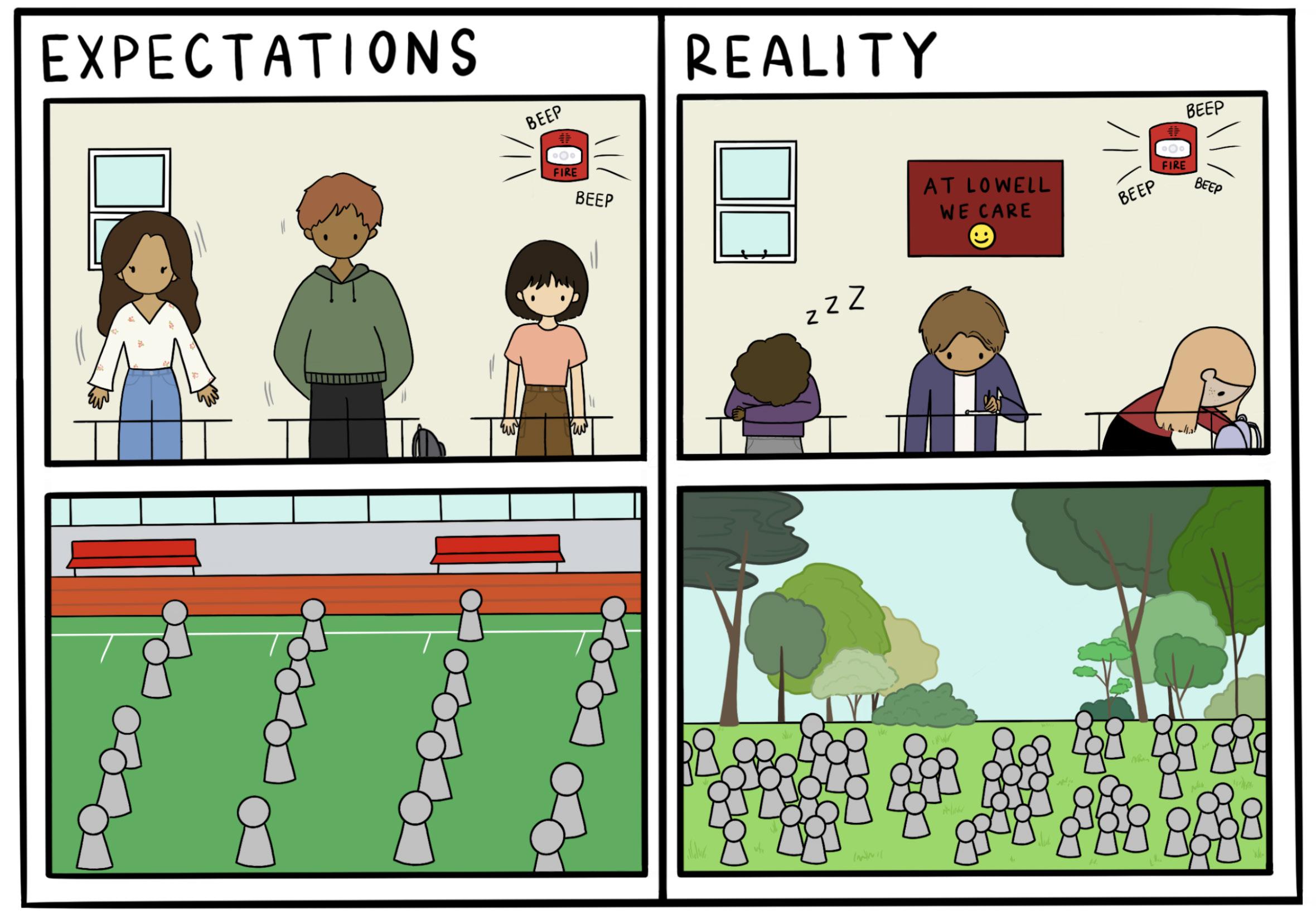

Dear readers of The Lowell,
Welcome back! The start of the school year is always a busy time, as we start back up the publication.
Last year, we were dreading the complete removal of our journalism program due to budget cuts. Through advocacy, great reporting, and the Alumni’s Association’s funding, we were able to save The Lowell. However, the journalism class has been downsized, and we’ve found ourselves interacting and communicating with beginning reporters. We’re closer than ever in the single room that our staff now operates out of, both physically and metaphorically.
Even the makeup of our staff has seen drastic changes. This year our class is filled with more illustrators, photogra phers, and multimedia editors than before, prompting us to introduce a new position: the Multimedia Editor-in-Chief. Between consequential Supreme Court decisions and upcoming midterm elections, many students have turned their attention to politics, and the issues that directly affect them and their families. In our cover story “Breaking from the liberal hold,” we explore the experiences of students with differing political views on Lowell’s campus, and their experiences being shut out for holding opinions that don’t align with San Francisco’s liberal climate.
We hope you gain new perspectives from our cover story, and enjoy our first issue of the school year.
Editors-in-Chief, Chloe Chon, Kelcie Lee, and Marlena RohdeThe Lowell is published by the journalism classes of Lowell High School. All contents copyright Lowell High School journalism classes. All rights reserved. The Lowell strives to inform the public and to use its opinion sections as open forums for debate. All unsigned editorials are opinions of the staff. The Lowell welcomes comments on school-related issues from students, faculty and community members. Send letters to the editors to thelowellnews@gmail.com. Names will be withheld upon request. We reserve the right to edit letters before publication.
The Lowell is a student-run publication distributed to thousands of readers including students, parents, teachers and alumni. All advertisement profits fund our newsmagazine issues. To advertise online or in print, email thelowellmanagement@gmail.com. Contact us: Lowell High School 1101 Eucalyptus Drive San Francisco, CA 94132 415-759-2730 or at thelowellnews@gmail.com
SPREAD DESIGN BY KELCIE LEE ILLUSTRATION BY KATEY LAU

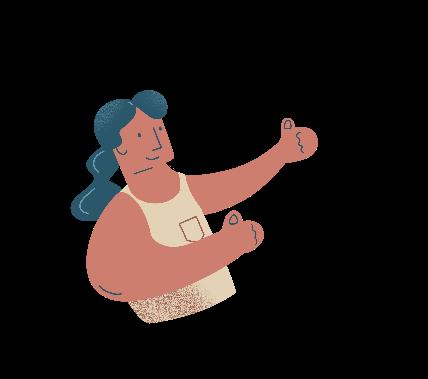




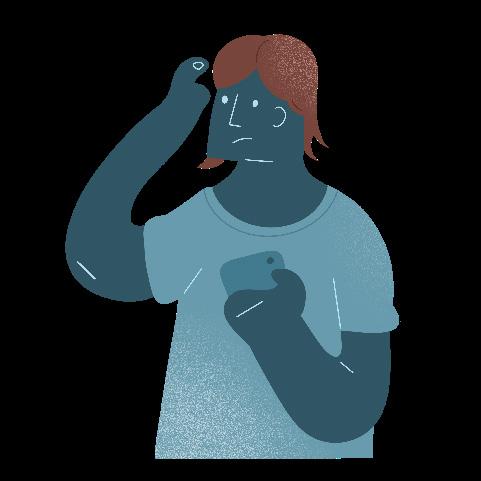




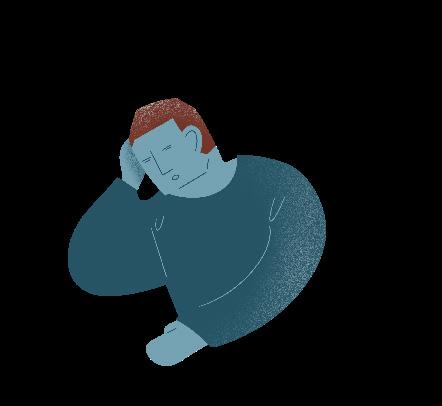

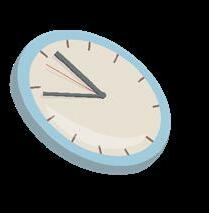
Some Lowellites are afraid to share political views outside of San Francisco’s liberal mainstream. We shed some light on a few such students.





San Francisco is ranked as the most liberal American city in 2022, ac cording to the World Population Review. Lowell, being the largest high school in San Francisco, often reflects the political perspectives of the greater city. As students share and discuss their political beliefs, those with opposing or differing viewpoints are often alienated and ignored. The diversity of political beliefs, ranging from gun rights to cli mate legislation, often goes unnoticed as the majority is placed under the spot light and other opinions hide beneath shadows. In this article, we profile stu dents holding a variety of political views and examine their experiences with Lowell’s political climate.

For Oliver, a junior using a pseudonym, even revealing his name when discussing his more conservative political views is something he’s hesitant about. According to him, his greatest fear when sharing his opinions is be ing misunderstood. “The fact that I’m anonymous says a lot,” he said. “I don’t
feel that comfortable with sharing my views, because there will be people who listen, but there will also be people who don’t actually listen to what I say and just label me a bigot.”
Oliver’s venture into politics began during the lockdown period of the COVID-19 pandemic. “Over quar antine, I had a lot of time to do my own research and become more politically aware,” he said. Additionally, living in a city as liberal as San Francisco has given him the opportunity to form opinions against more liberal ideals and policies that he’s noticed. According to him, his belief in self-sufficiency and hard work as a means of improving your own life contradicts many San Francis cans’ heavy support of social programs, which is why he supports measures such as lower taxation. “I think that there’s a general culture of entitlement in more liberal cities like San Francisco,” he said. “People expect opportunities or handouts, like social security programs, without making any effort to achieve things by themselves.”
For Oliver, Lowell has never
been an environment in which he feels safe expressing his views, largely due to the unanimity of views. He recalls that when students discussed current events in class, most students agreed with the speakers, while no one offered differing opinions. “Whenever students talk about issues like income dispari ty or vaccine mandates, you can really tell that a lot of people at Lowell share a common belief,” he said. “I disagree with vaccine mandates, and I don’t think governments should have a say in our autonomy. They shouldn’t be able to tell you what to put in your body or not.” According to Oliver, he also op poses popular measures such as student loan forgiveness. Similarly, he doesn’t feel comfortable voicing this opinion out loud. “I wouldn’t share these views publicly, because other people disagree,” he said.
In addition to the underrepre sentation of conservatism on campus, Oliver believes that the hostility towards conservative beliefs contributes to his discomfort with sharing his views. “On social media, I’ve seen students get ‘call-
ed out’ for sharing different opinions,” he said. “There’s this culture of shutting down opposing opinions.” According to Oliver, this gave him the impression that his opinions weren’t welcome, even if he was open to discussing them.

Oliver believes that the current portrayal of conservatism in the media, as well as the actions of the Republican party, have contributed to the ostra cization of more conservative voices at Lowell. “I don’t agree with the current politics of the Republican Party, and I think they give more right-leaning peo ple a bad rep,” he said. “I know there are politicians like Trump and Marjorie Taylor Greene that make Republicans and conservatives look uneducated and bigoted.”
Oliver also believes that he shares common ground on certain is sues with most students at Lowell, even if they don’t know it. A prime example: abortion rights, which he claims an overwhelming majority of Lowell stu dents support. “I support people’s right to abortion because banning abortions is an abuse of government power, which should be minimally interfering in peo ples daily lives,” he said. “You probably wouldn’t think that, because you have this perception of conservatives.” Ac cording to Oliver, this is an example of how he believes that people’s miscon ceptions of opposing viewpoints inter fere with agreement and collaboration.
For now, Oliver hopes that students will be more open to listening to different, sometimes opposing, per spectives. According to him, listening to others’ beliefs helps expand your per spective and adjust or modify your own opinions, which is something he’s per sonally experienced on Lowell’s cam pus. He believes that stifling opposing voices only causes harm. “If you’re only listening to other Dem ocrats and con suming Demo cratic media, you’re going to miss out on different opinions that might widen your per
spective or change your beliefs,” he said.
“It’s like an echo chamber.” Despite the current polarized state of politics, Ol iver maintains his faith in more open discussion. “I think if people really sat down and talked about their beliefs, they would find out there’s a lot of com mon ground,” he said.
Although senior Bryce Quin tos’s views fairly align with the SF popu lation, he still feels that a differing opin ion can leave one alienated and hopes for a more accepting political climate at Lowell.
Quintos became very engaged in politics despite living in an apolitical household. “My parents are what you call the opposite of being political. They don’t really vote in elections,” Quintos said. “Sometimes I bring up certain po litical issues, like, ‘Did you hear about the Inflation Reduction Act that was passed?’ and they’re like, ‘What the heck is that?’” Like Oliver, Quintos’s interest in politics began during the pandemic. “There were a lot of economic issues and social issues that came up during the start of the pandemic,” he said. “Such as COVID unemployment, economic instability, as well as the George Floyd and Black Lives Matter movement.”
According to Quintos, his pas sion for politics is fueled by his other interests and identity. For example, through his interest in fighting
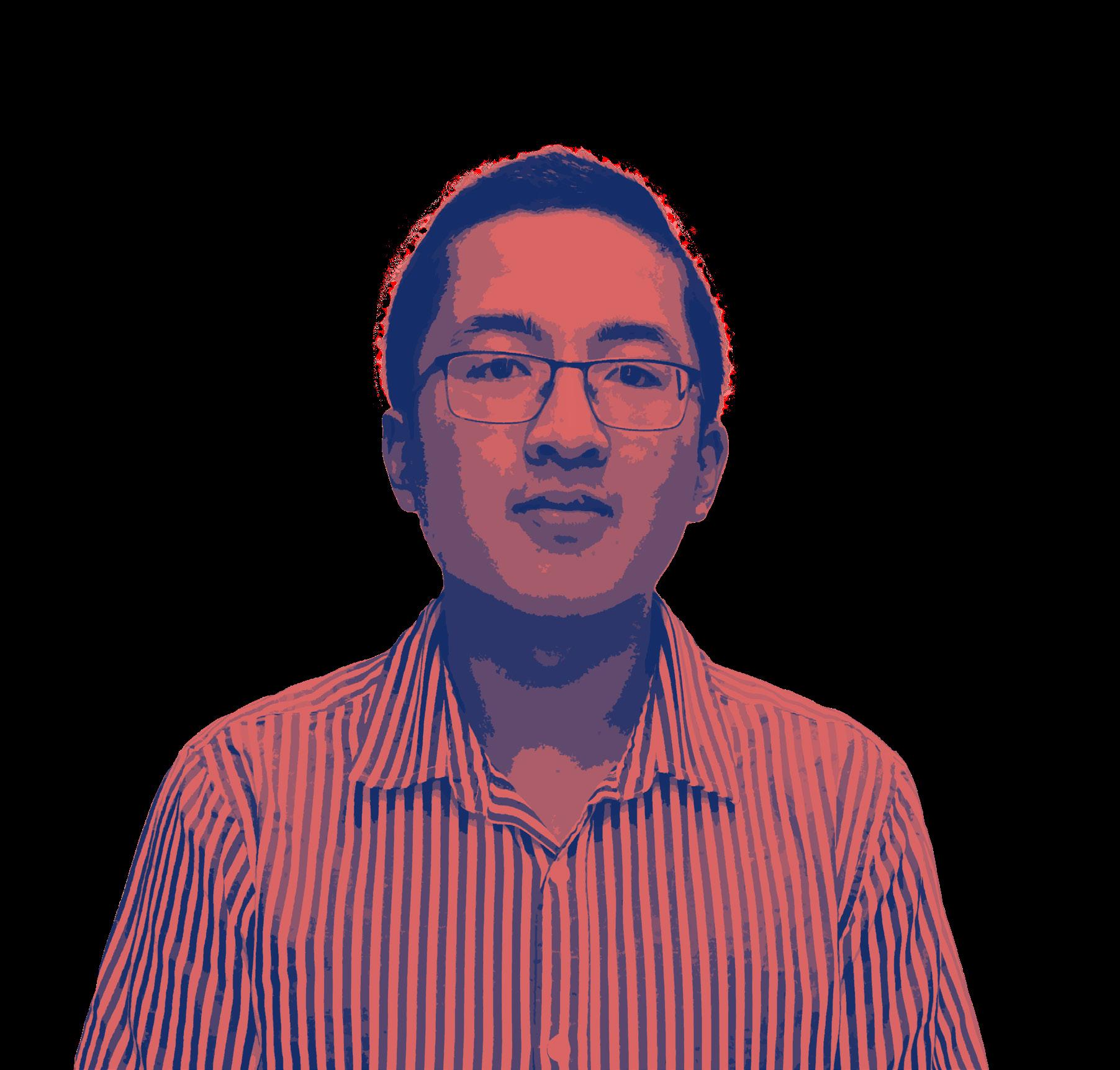
“I DON’T FEEL THAT COMFORTABLE WITH SHARING MY VIEWS, BECAUSE THERE WILL BE PEOPLE WHO LISTEN, BUT THERE WILL ALSO BE PEOPLE WHO DON’T ACTUALLY LISTEN TO WHAT I SAY AND JUST LABEL ME A BIGOT.”
climate change, he learned about the role policies play in how people and corporations interact with the environ ment. “Seeing how we have a Demo cratic president who promised to fight climate change and take up various issues brought up hope in me to really advocate to pass certain legislation,” he said. Quintos also became interested in advocating for LGBTQ rights because he identifies with that community. He was worried when Roe v. Wade was overturned, as it could cause a domi no effect with other preceding cases. “[The Supreme Court] could look over previous cases such as the case legaliz ing gay marriage or the one legalizing interracial marriage,” he said. “Rights recognized by the government aren’t something to take for granted, because of how unruly and divisive the political system is. Anything could happen.”
While Quintos’ stance on is sues like climate change reform and LGBTQ rights led him to identify as a Democrat, he doesn’t agree with all the ideas and decisions made by Democrat ic politicians. “On certain issues, I’m a little muddy or convoluted,” he said. “I’m a little more towards the conser vative side.” According to Quintos, he often hesitates to speak out when he has differing opinions from the majority of other students. “I would sometimes disagree internally but wouldn’t contra dict them because of fear of being os tracized or left out,” Quintos said. From
his own experience, he feels that Low ell’s environment can isolate students who hold conservative or right-leaning perspectives. “I do hear about people who mention that they’re conservative or they’re pro life and some people will say, ‘You’re wrong’ or, ‘That’s not the right viewpoint,’” Quintos said. “And I personally just feel bad for those people that aren’t able to really say what they want to say because of the fear of being kind of looked down upon for their po litical beliefs.”
Despite the political divide that Quintos feels in the country, he believes there can still be civil conversations be tween people with opposing political beliefs. He personally tries to better un derstand varying political perspectives and does so by consuming news from lets. “I think just
ing some conservative news outlets and their point of view, I could understand some of their reasoning behind why they are for a certain reform or mea sure,” he said. Quintos hopes that more students will develop this approach and make Lowell’s environment more wel coming towards differing beliefs. “Civ il discussions about [all perspectives], liberal versus conservative or moderate viewpoints, can happen without the en vironment being hostile,” he said.

Senior Amelie L’Etoile-Goga believes that San Francisco’s, and sub sequently Lowell’s, politics aren’t lib eral enough along the scale. “I think a lot of our classes portray a very San Franciscan view of politics,” they said. According to them, part of this bias stems from San Francisco’s climate and environment itself. “San Francisco is a very tech-y city that’s very focused on consumption, and I think that carries through,” she said. “Generally in Lowell, people hold the view of certain corpora tion rights.” This includes things such as corporations’ rights to a free market and monopoly power, which are typically viewed as more conservative ideas. Al though she disagrees with those ideals, she’s reluctant to speak up about it. “I think those [corporation] rights should be slimmed to none at all,” they said. “I think a lot of people have objections to that because of the idea of a free mar ket.”
In the classroom, L’Etoile-Go ga feels uncomfortable sharing her own beliefs for a reason similar to fellow students such as Oliver: Lowell lacks an open, friendly environment to discuss differing opinions. While L’Etoile-Goga agrees with others that Lowell’s popula tion is largely liberal, she has her own differing opinion on the specificities of Lowellites’ political views. Although liberals and leftists are typically viewed as being on the same side of the polit ical spectrum, they do not equate to meaning the same thing. She believes that, contrary to others’ beliefs, Lowell students’ views are on the more conser vative side of liberalism. “[We’re] not
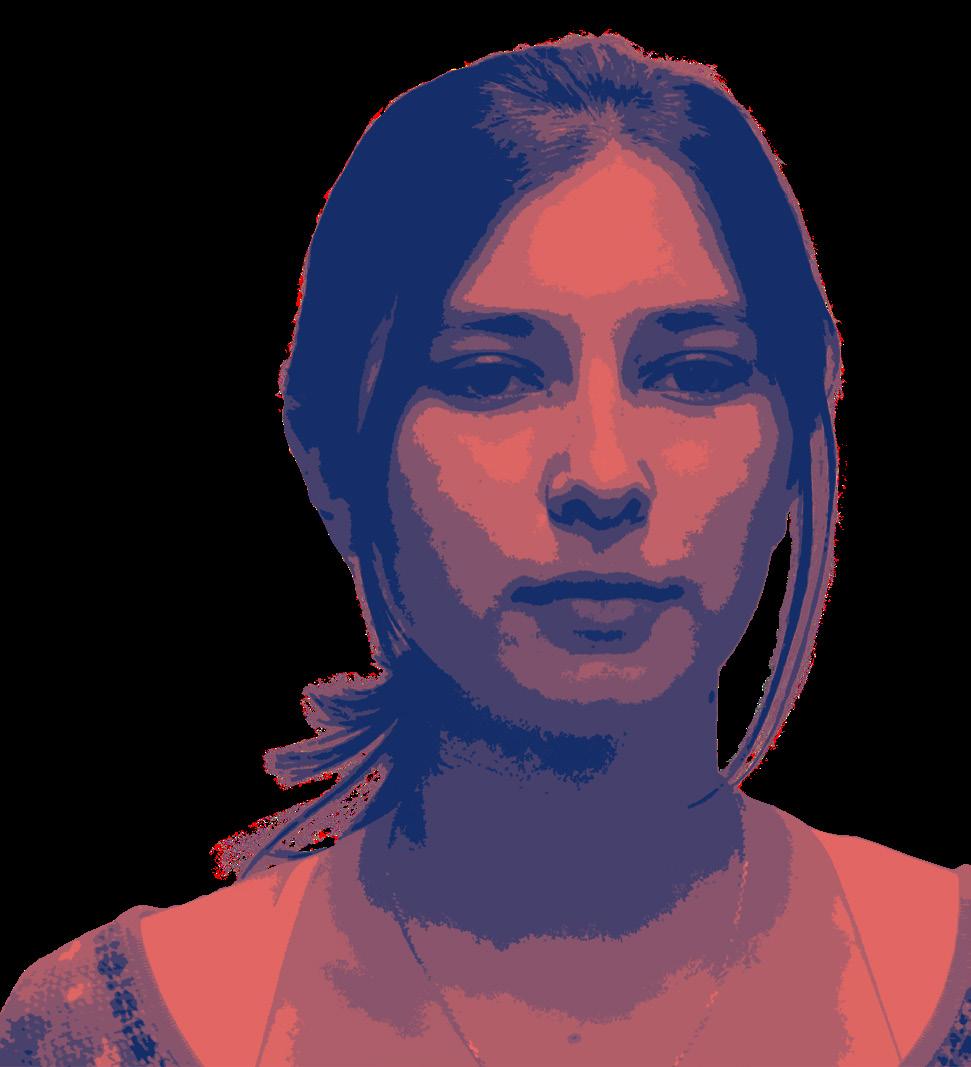
“I WOULD SOMETIMES DISAGREE INTERNALLY BUT WOULDN’T CONTRADICT THEM BECAUSE OF FEAR OF BEING OSTRACIZED OR LEFT OUT.”
liberal in a progressive sense,” she said. “We’re very entrenched in capitalistic ideals.” This difference has led her to lean away from participating in discus sions regarding politics. “In one of my current classes, there was a question like “What are your political views?” and I filled it out saying “I’m a leftist,” she said. “When it came to sharing in class, I didn’t feel totally comfortable sharing all of that with people.” Accord
ing to L’Etoile-Goga, sharing differing opinions can be seen as “inflammatory”. “That’s something I try to avoid,” she said. “Generally, [Lowell’s] environment is not super open.”


Noticing the ostracization of students with opposing political views, Junior Win Neubarth decided to create a safe space at Lowell for balanced dis cussion. In the 2020-2021 school year, he founded Lowell’s Political Science Club, where students meet to research, talk, and learn about all things involv ing politics. “I think generally, the Poli Sci Club is a place to kind of express views they might be scared to express in front of other people,” Neubarth said.
Neubarth’s political interest stemmed from a middle school field trip to Washington D.C. During the course of five days, he and his friend be gan discussing politicians and political issues. “We kind of started talking about politics and we talked about it the whole trip,” Neubarth said. “We talked a bunch about presidents and past presidents and candidates for the 2020 election.”
Although Neubarth’s political views largely fall into the liberal cat egory, his views on some issues such as gun control are more uncommon. Friends and family influenced Neu barth to build his own position on po litical issues like gun control. “Gener ally, I’m pretty liberal. In terms of gun control, I’m very libertarian,” he said. “Mostly because I think that if people want to have access to a gun and they feel threatened to some capacity, they should be able to have any type that they want.” While Neubarth believes that ghost guns should be more heavily restricted, he believes AR guns should not. “I think that if you were to ban cer tain guns from others, people would just go underground,” he said. “It’d be harder to track who has what guns. I think historically, the right way to deal with guns is just increasing background checks.”
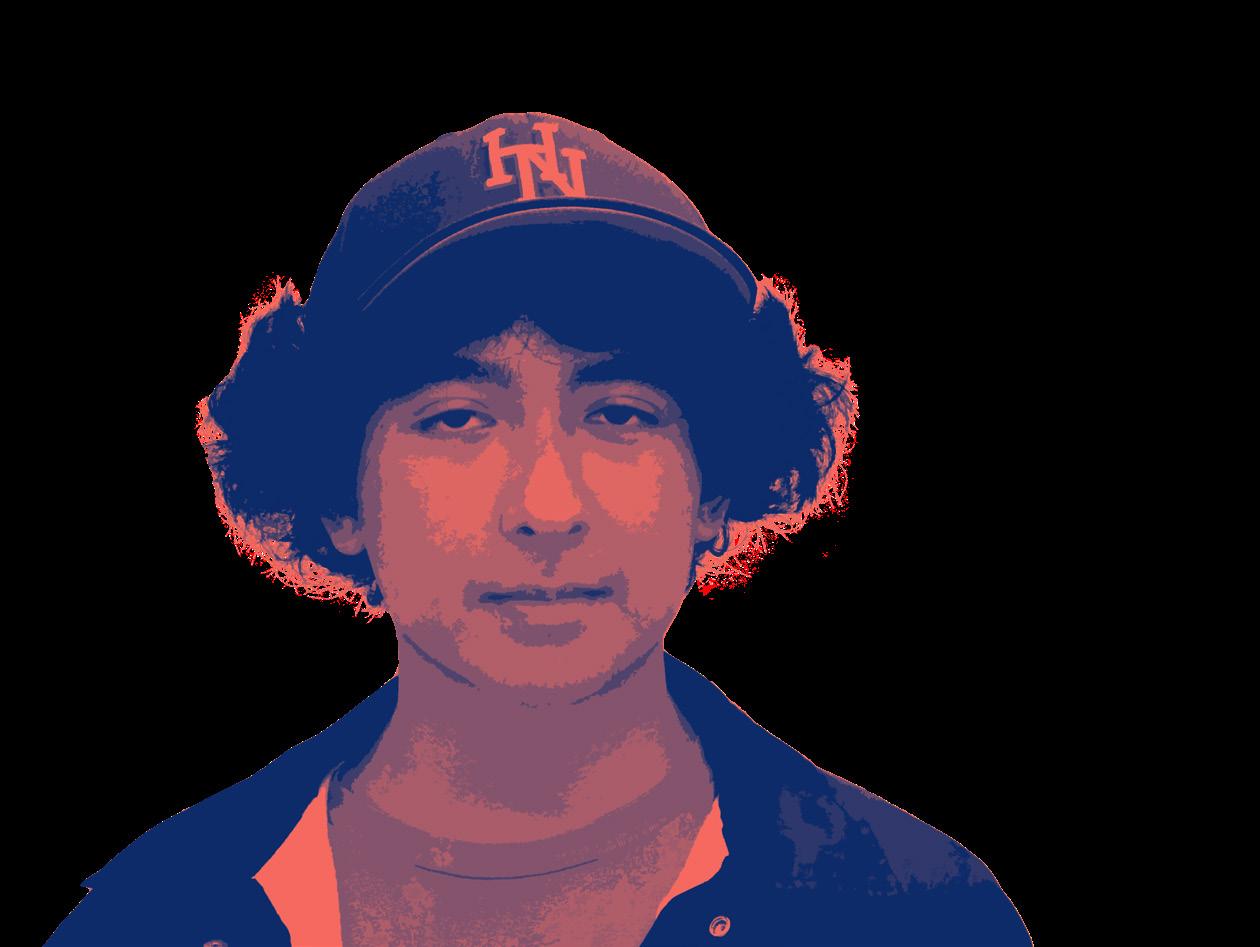
Neubarth has seen friends get insulted for expressing their views on gun ownership, which leaves him hes itant to express his own views. “I’m sometimes afraid to say exactly what I have on my mind in terms of guns, because I’m afraid that I’ll be shunned or people might look down on me or people will just straight up insult me, saying, ‘How could you say that?’” Neu barth said.
When Neubarth came to Low ell, he was looking for an environment where he could openly discuss politics with other students. He didn’t find it. “I didn’t really think there was a great way to express my political views or even talk about my political views in a club or
extracurricular,” he said. “So I thought, ‘Why not create a club where you can express your views and just talk about politics?’”
Despite the strong feelings that political discussion can evoke, Neubarth believes such dialogue should occur in classrooms, as long as one’s beliefs don’t harm others. According to Neubarth, one of his teachers last year facilitated a class discussion particularly well. “[My teacher] didn’t like the lottery policy, but he thought that if you did like the lottery policy, that’s okay and there’s nothing wrong with you,” Neubarth said. “He clearly communicated that to the class, and I think that’s the right way to do it if you want to talk about pol itics in a classroom.” Neubarth wishes that his experience in that class could be expanded to the greater school environ ment. “I just hope that Lowell becomes a safer environment to express whatever view you want,” Neubarth said. “I hope that people become more accepting of less traditional views, such as libertari an or libertarian Republican views.”
Despite a wide variety of political opinions and views, popular liberal views are often the only views openly expressed at Lowell. This rigid political climate limits students from sharing their true beliefs around controversial policies. The students profiled in this article may be at odds with one another politically, but they agree that the Lowell community should work toward creating an environment that will not just tolerate, but welcome, opposing opinions.
“I’M A LEFTIST, WHEN IT CAME TO SHARING IN CLASS, I DIDN’T FEEL TOTALLY COMFORTABLE SHARING ALL OF THAT WITH PEOPLE.”SPREAD DESIGN BY ELISE MUCHOWSKI

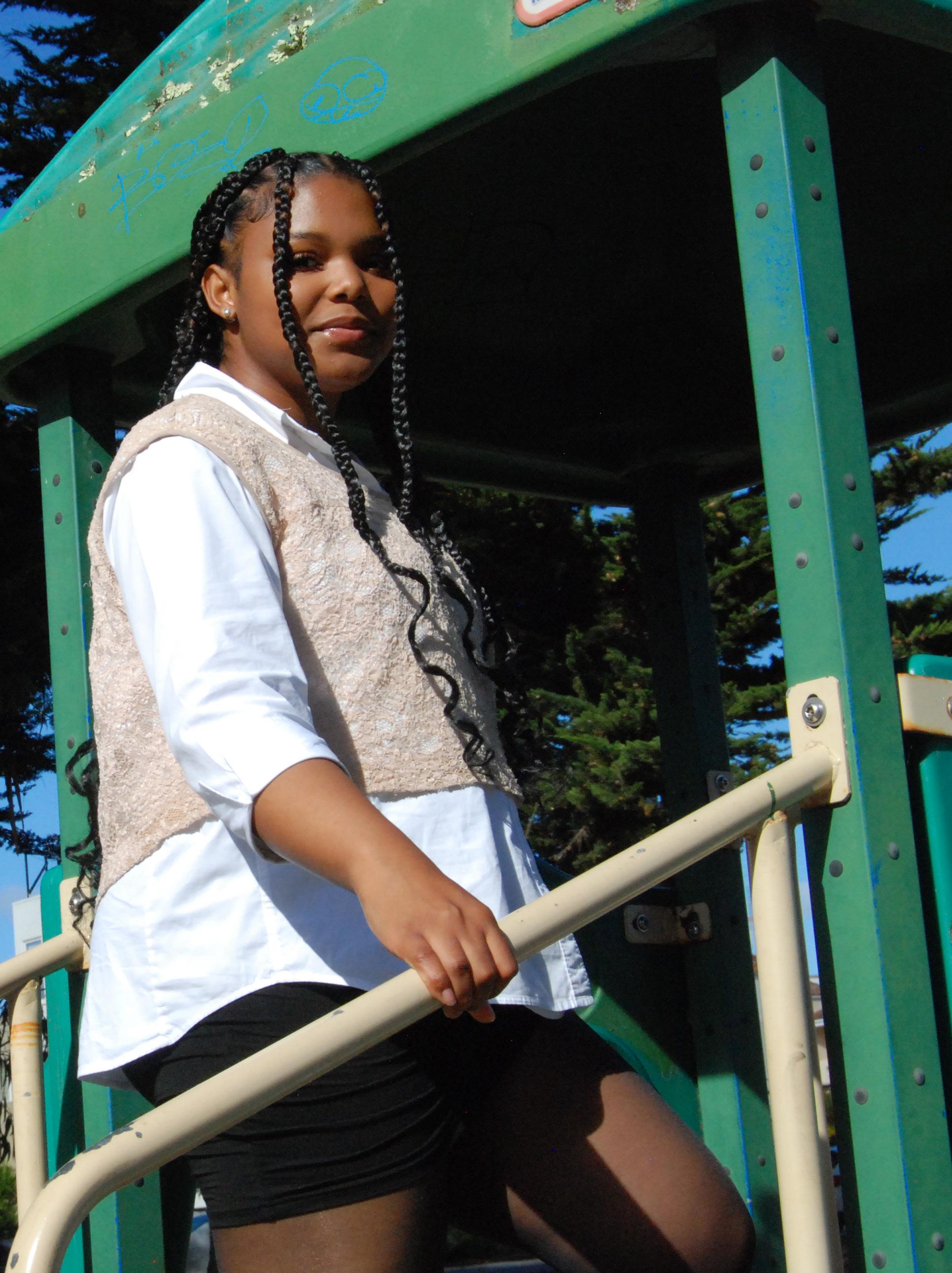
 PHOTO BY KYLIE CHAU
PHOTO BY KYLIE CHAU
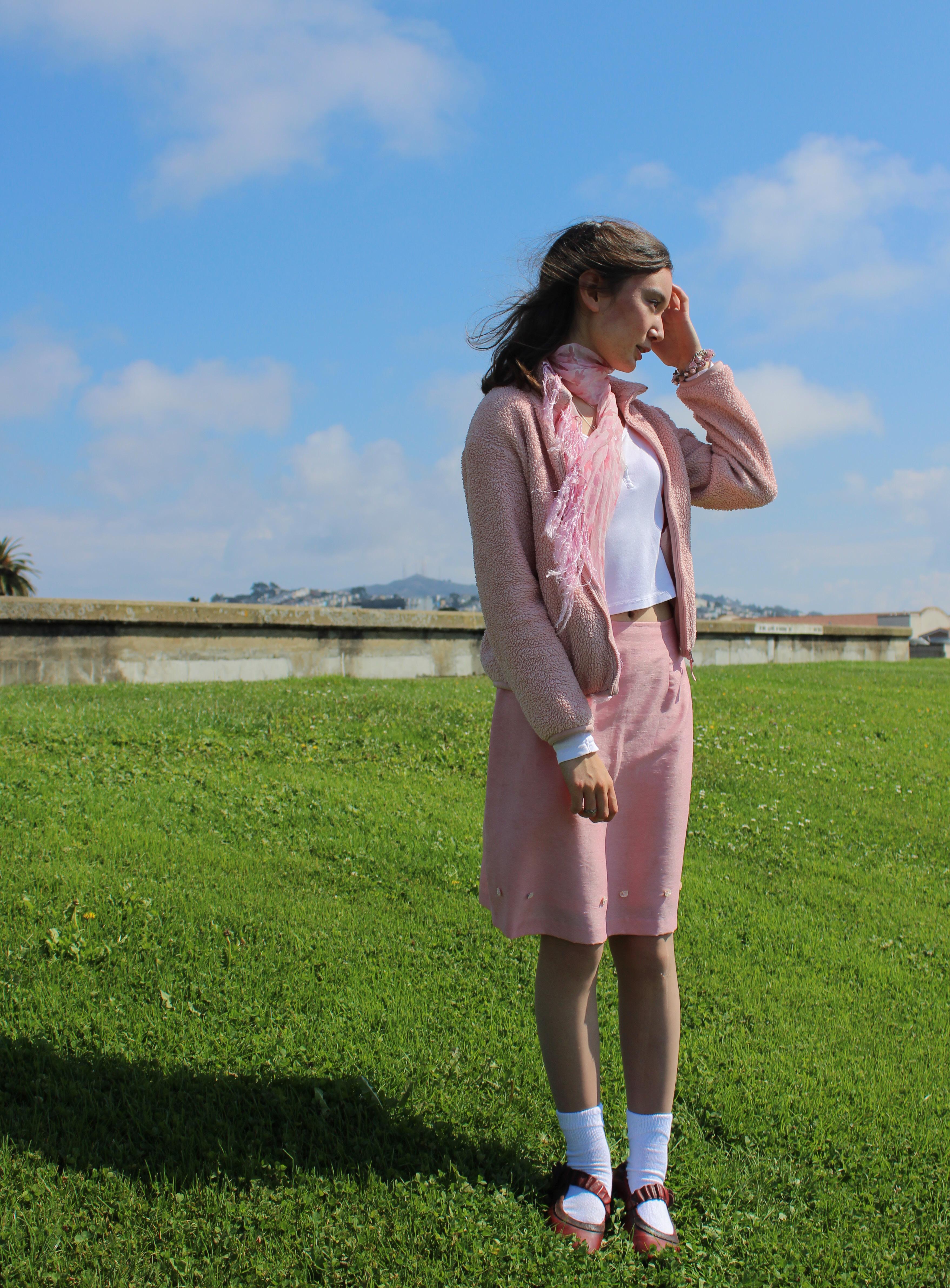
“[Fashion is] something I can control and express myself with. It’s also just really fun to see what I come up with.”



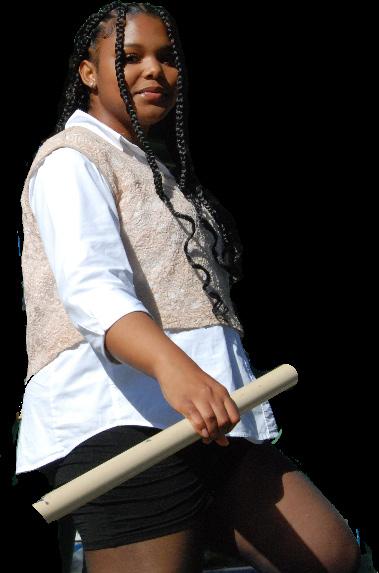
 PHOTO BY AVA ROSOFF
PHOTO BY AVA ROSOFF
“I’m inspired by almost everything— whether it be music or patterns on a dress.”SPREAD DESIGN BY MARLENA ROHDE

 PHOTO BY LAUREN KIM
PHOTO BY LAUREN KIM

“I think my style is very much a mixture of masculine and feminine, androgynous, sort of chic.”



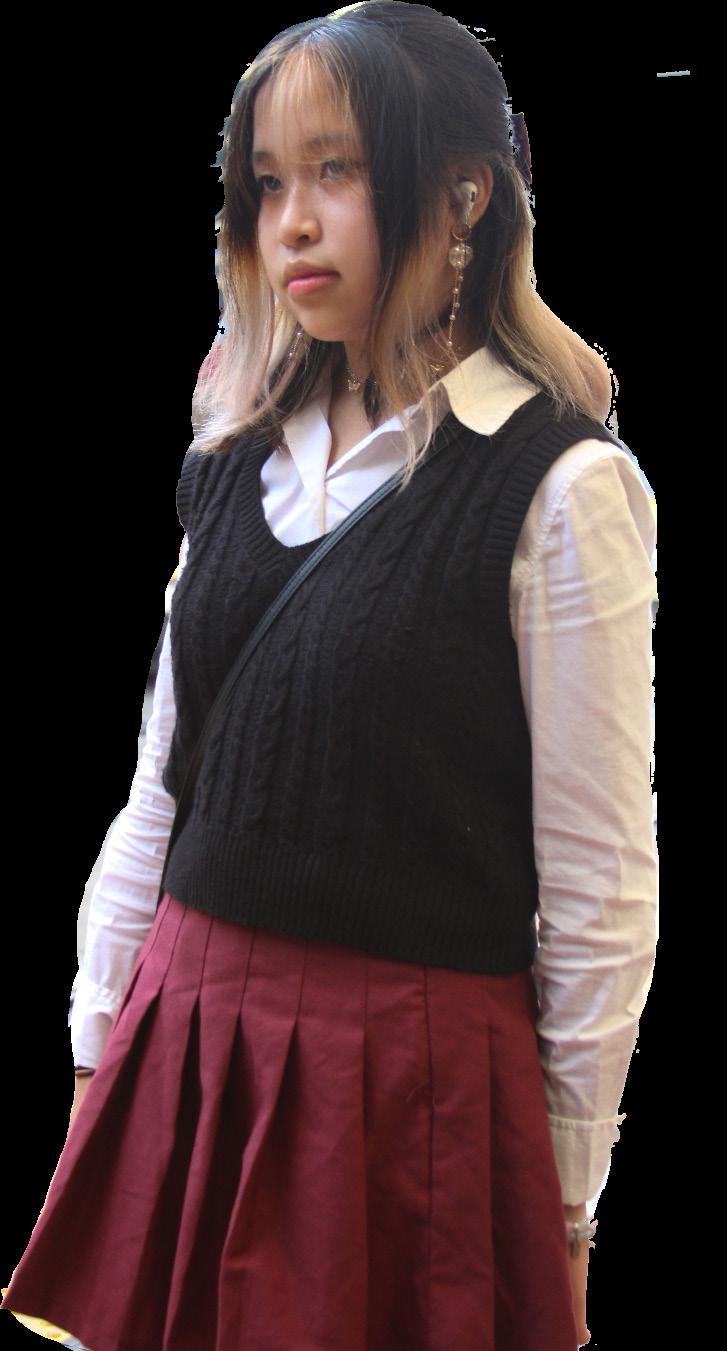
“A good outfit definitely makes me feel more confident and comfortable. Being comfortable with what you wear is the first step to finding your style.”SPREAD DESIGN BY MARLENA ROHDE
The negative attention alleged assaulters GUILTY BY supporters of sports teams. A baseball player and
BY ROMAN FONGSA/SH.” I stared at my phone, confused, trying to figure out what those letters could mean. They had been typed in bright red above a post — the same post I’d seen reshared on numerous Instagram stories throughout the day. I tapped on the screen and began reading.
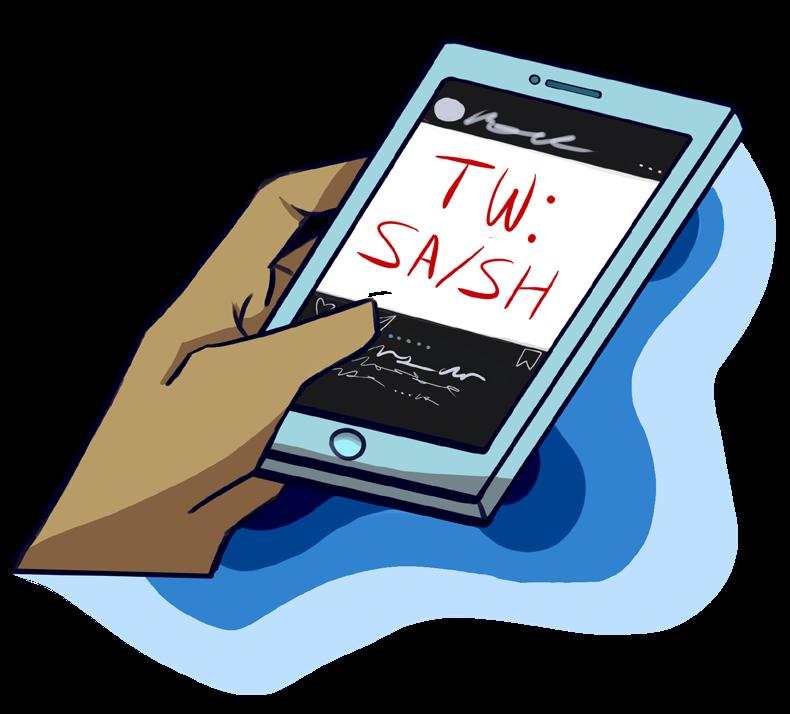
Little did I know my experience as a student athlete, specifically as a mem ber of the baseball team, was about to change forever.
During October 2021 and the weeks following, many Instagram posts were shared, all reposted with the letters “TW: SA/SH,” which I would learn stood for “trigger warning: sexual assault/sex ual harassment.” People came forward with their experiences around sexual as sault and harassment, calling out not only abusers for their actions, but the admin istration for doing little to alleviate the situation. Initially, the anger was main ly directed at perpetrators and admin, however, entire sports teams also began to receive backlash on social media. It seemed like the new negative attitude to ward sports teams had taken away from addressing the real issue of dealing with sexual violence and created a new one — one where being on a sports team meant you were accountable for the actions of your teammates.


Initially tame, accusations and hostility against Lowell athletes increased. I saw reposts every day, telling us we were just as guilty as the perpetrators, urging us to quit the team to show solidarity with survivors. As a result, I stayed off social media, slamming my phone down every time I saw a notification, praying it wasn’t about a new post. Avoiding social media seemed
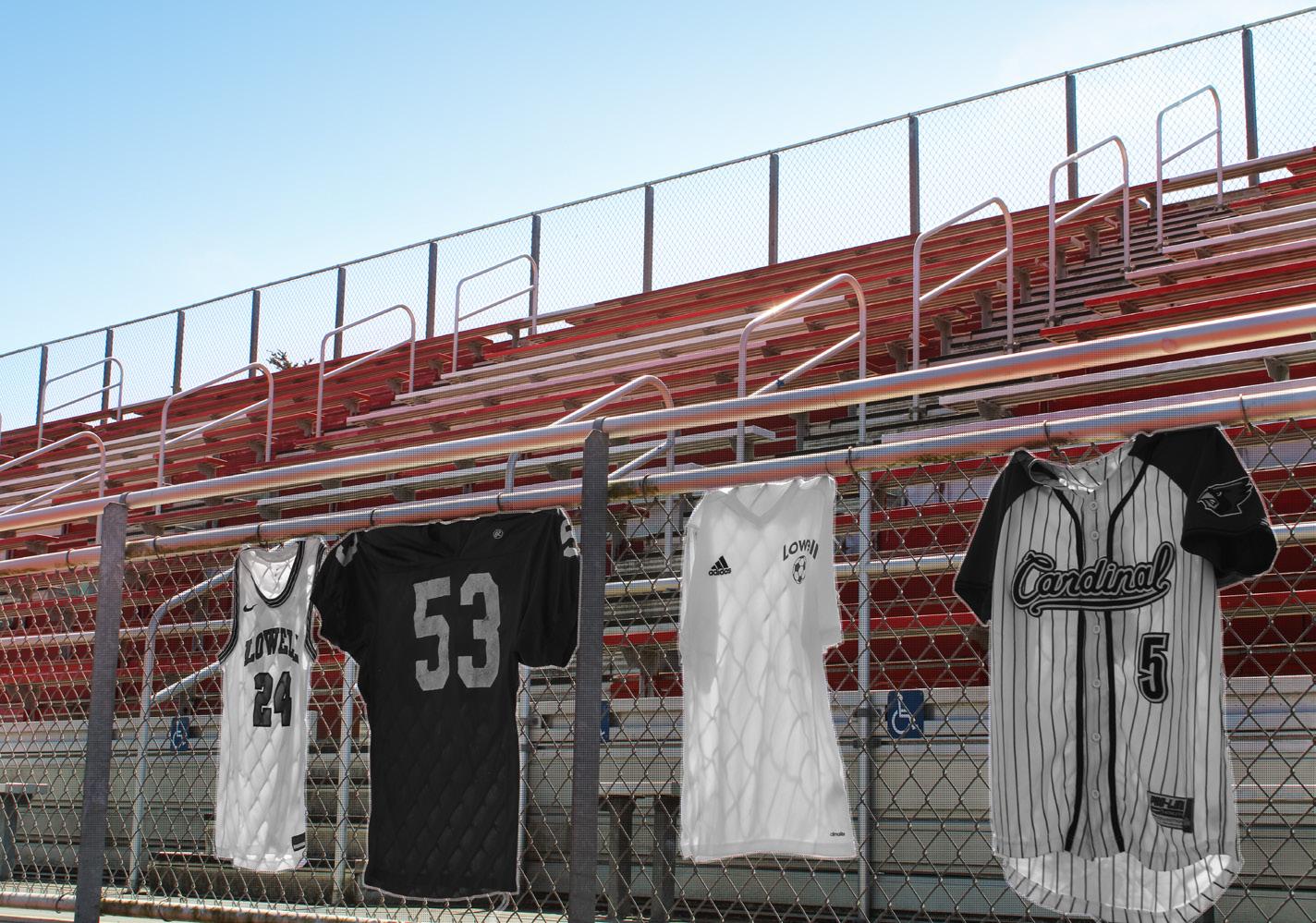
to work — until the issue caught up with me personally. “F*ck you! F*ck the baseball team!” someone said to me in the stairway. Out of nowhere, the gravity of the situation crashed in on me. I’d always worn my Lowell baseball cap and shirt around school with pride, but now doing so made me a target of hatred. The issue had become so much more than just sex ual assault and harassment: The re posts and calls to support survivors had shifted from demands for aware ness and action into a movement against sports teams.
The hostility towards sports teams didn’t relax for weeks. Ath letes who’d done nothing but be on a team with the accused per petrators were now being held accountable for someone else’s actions. Every new student’s Instagram story hurt more now that I was seen as someone who was a contributor to survivors’ pain. These were experiences that needed to be
take away from the principal purpose of sports teams themselves — for athletes to find enjoyment in a shared passion. Last year’s events changed how many, if not most, Lowell students perceive some of the school’s sports teams. These students have a negative association with boys’ basketball, football, and baseball teams in particular. I believe a distinction between athletes on teams and sexual assault must be made. People join sports as a way to form connections through a shared inter est. Though it is crucial to acknowledge problems related to your team when they arise, athletes shouldn’t be seen as respon sible for issues caused by a teammate.
I didn’t know how to react when
I learned about the terrible things some people within my community had done, but it crushed me when whole teams, me included, were antagonized and put in the same boat as those perpetrators.
Sexual assault and harassment awareness are topics that need to be taken seriously, but spreading awareness and calling for action shouldn’t create a new conflict and
PHOTOS BY KAHLO FRIEL-ASAY AND MALENA CARDONA, ILLUSTRATIONS BY CHARON KONGThe calls to support survivors had shifted from demands for awareness into a movement against sports teams.
Withred and white poms stuffed in bags slung across our shoulders, my team mates and I trot across the brightly lit court. Exiting Kezar stadium together, we were caught off guard by a crowd of students lined up holding large posters with bold red-lettered statements. The words urged more action to be taken against the athletes accused of sex ual assault. Guilt washes over me as I realize that our cheering for the team, including the accused athletes, con tradicts the beliefs of the protestors. The other ers and I quickly distanced ourselves from the crowd, not wanting to inten sify the tension between protestors and the supporters of the event in our red uniforms and sparkly bows. This was my experience cheer ing at last school year’s Spring 2022 bas ketball championship game.
Since the wave of sexual assault allegations against predominantly male athletes were reported to Lowell’s ad ministration, uninvolved students have been unfairly blamed for the accused students’ actions. Choosing to support these teams does not mean that we con done sexual assault or harassment at Lowell.
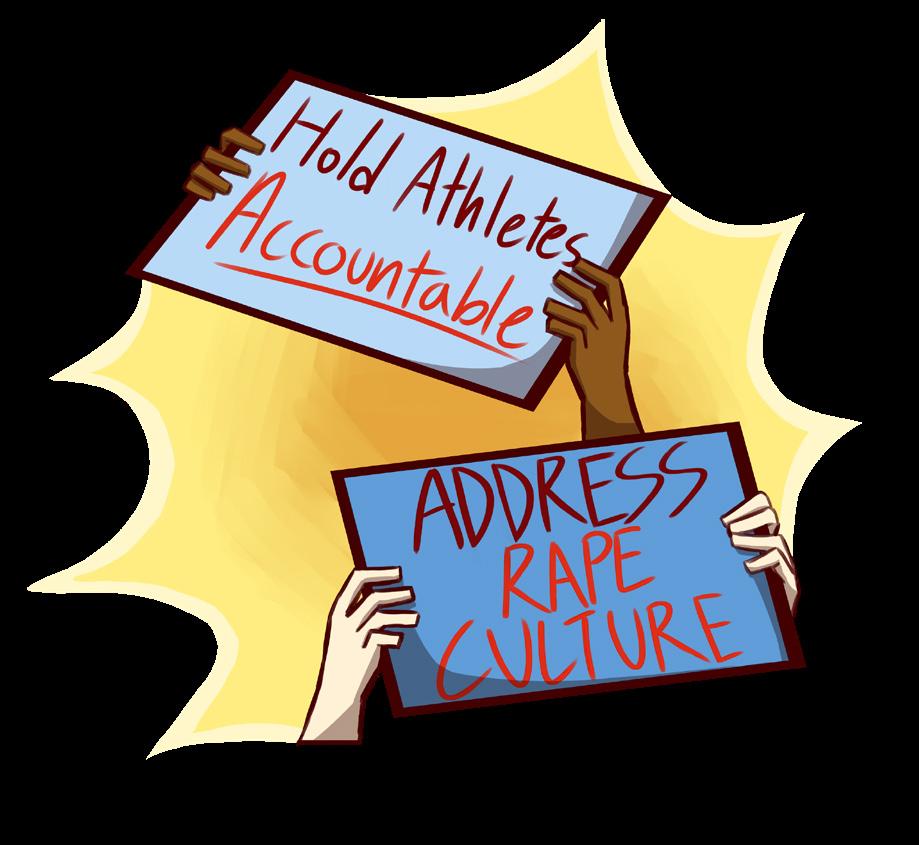


Unfortunately, sexual harass ment remains a prevalent issue, espe cially on Lowell’s campus. I agree with so many frustrated students: the issue of sexual assault requires more attention from school administration in order to prevent future incidents. As a member of Cheer, it pains me to to represent a school where sexual violence continues
to be such a problem.
Though I enjoy yelling cheers to motivate my peers, attending school athletic events in support of sports teams has put me in an awkward situ ation. On the one hand, I feel obligat ed to uphold a positive image for my On the other hand, I feel reluctant to cheer for con troversial athletic teams.
I have felt alienated by students for showing support at games, where I am indirectly tied to teams consisting of alleged sexual assault perpetra
However, choosing to attend these sporting events should not make a person any less of an advocate against sexual harassment. For me, signing up to be a cheerleader implies my commit ment to represent a positive image for the school and galvanize students, ath letes or not. However, I also acknowl edge that it means I am working with a historical ly feminine cheer team that up holds patriarchal gender norms; this includes the traditions of cheering for primarily male basketball and football games in skin-tight uniforms. Nevertheless, Lowell’s cheer program has made attempts to educate me and my peers through online USA Cheer safety curriculums, overviewing les sons on sexual harassment awareness. As I am fortunate to recieve exposure to the significance of these issues through
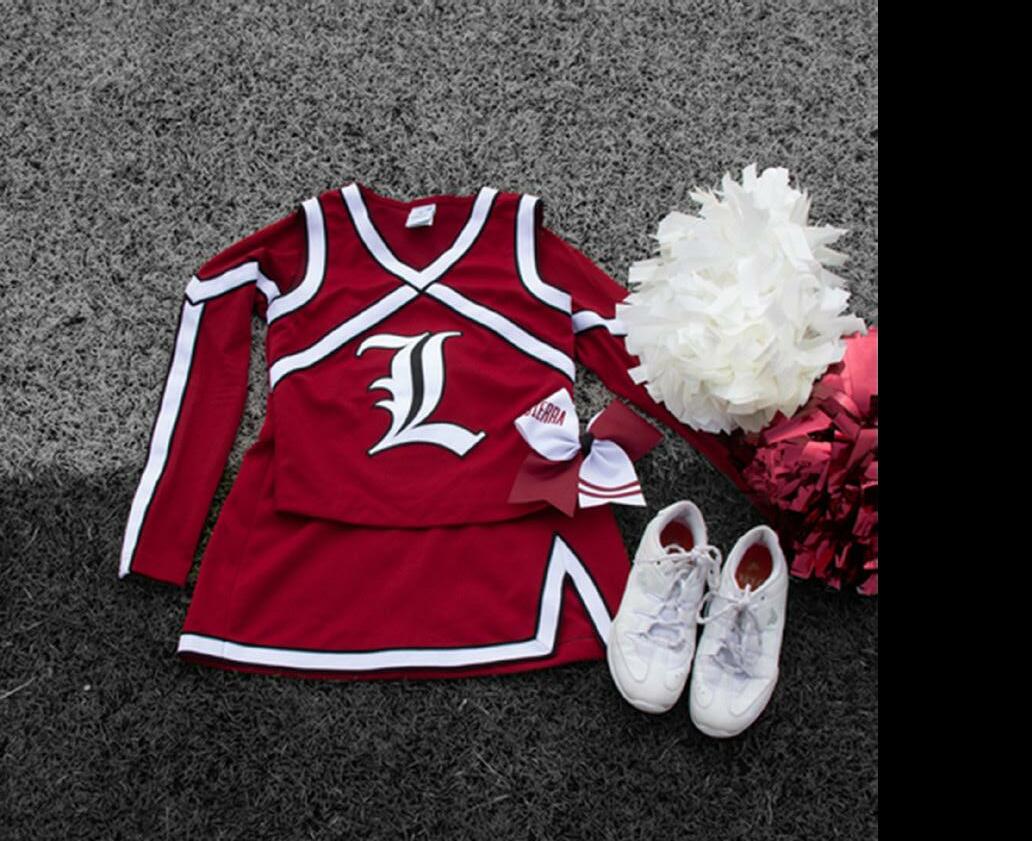
the lessons provided to my team, my choice to continue cheering for sports does not correlate to condoning any part of sexual assault.
For general students that enjoy being present in the stands of Lowell sporting events, supporting their schools’ athletic teams is a way of spending their leisure time outside of a stressful academic environment. At tending these events helps students feel connected to their peers in the school community, and should not be seen as a means of antagonizing sexual assault victims. Since student-athletes have been villainized, supporters of sports teams have been attached to a negative connotation of sexual assault.
Having to wave my poms at the sidelines of boys’ sports games, I have felt hesitant to stand by teams consist ing of athletes accused of sexual vio lence. The stigmatization of supporting athletic teams have unjustly grouped unin volved students with the conse quences of their peers. Though student orga nized protests targeting male sports teams for on-campus sexu al harassment have died down since last spring, the possibility of further rallying against Lowell’s athletes remains. In the event of student advocates deciding to march out of classrooms or holding up signs, it is important to consider the toll these demonstrations have on students like myself.
BY KELCIE LEEI have felt alienated by students for showing support at games, where I am indirectly tied to teams consisting of alleged sexual assault perpetrators.
received unfairly shifted to teammates and ASSOCIATION cheerleader share their experience of alienation.
First-generation students struggle to get enough support from Lowell in the college application process.
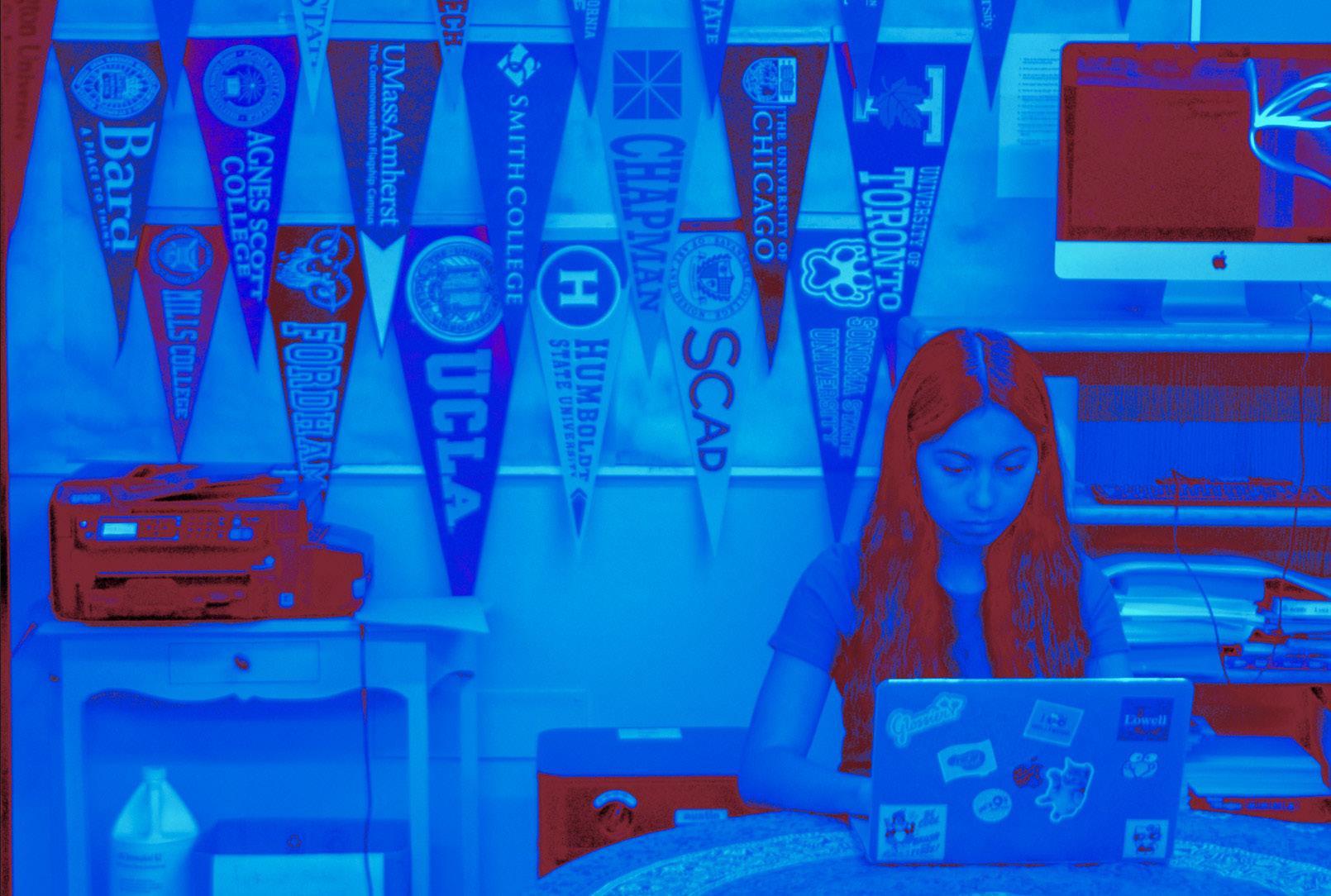 By Aaliyah Español-Rivas
By Aaliyah Español-Rivas
 PHOTO AND SPREAD DESIGN BY MARLENA ROHDE
PHOTO AND SPREAD DESIGN BY MARLENA ROHDE

the f*ck,” senior Favio Nogales said as she opened the University of California applica tion. She had been excited to get started on the process that would lead her to become the first in her family to go to college. Nogales gazed at the blue and gold background on the online application, not knowing how to navigate the site. The words seemed to grow fuzzy and incom prehensible. Dozens of questions swirled around her head as she felt alone, staring at her laptop screen. What is my fam ily’s income? How do I get my transcript? How do I answer the essay questions? Where do I even start? She turned to her friends who aren’t first-generation, and was stunned to learn that they had private college counselors, were involved in nu merous programs, and had family members to help. Nogales wondered why Lowell didn’t have enough resources to help a first-generation student, but decided to brave the application alone.
First-generation Lowellites are struggling with the college application process and feel Lowell isn’t doing enough to support them. This is in part due to shortages in staff and resources on campus. With college application season upon the Class of 2023, seniors have been rushing to get help with their college lists, essays, and financial aid applications. This onslaught of students seeking guidance has quickly over whelmed Lowell’s college center, leaving first-generation stu dents with little means of receiving the support they need. Moreover, Lowell students feel that Plan Ahead, Lowell’s re placement of the College and Career course, puts students at a disadvantage. As seniors start the application process, they’ve realized the program poorly introduced them to the pro cess, with them being unable to recall any information they learned. Though Lowell does offer AVID (Advancement Via Individual Determination), the program’s accessibility isn’t as widespread for all first-generation students, with some even being unaware of the program.
Nogales, the eldest child of two immigrant par ents from Mexico, began at Lowell with no intention of going to college. However, after realizing in her junior year that she wanted to study abroad, college soon became a goal. Yet she had no idea how to achieve that goal. “I knew I wanted to go to college, but I had no clue how to get there, and I was failing my classes,” Nogales said. Upon meeting with her counselor, she found out that the only resource available was Lowell’s College Center, which was always packed. Thus, Nogales waited until her senior year to get help, anx iously attempting to do research, but com ing up empty-handed when navigating the process.
Among Lowell’s small population of first-generation college applicants, Nogales is not alone in feeling this way. An anonymous survey given to five random senior regis tries showed that around 16 percent of the Class of 2023 are first-generation, meaning they will be the first in their fami
ly to attend college. According to responses from the survey, these students have found the application process confusing and overwhelming. “It’s hard not knowing what I need to get done,” an anonymous first-generation student said. “And hard getting help because I don’t know what expectations I need to follow for my applications or what I can be doing to make it easier for myself.” Other first-generation students believe they need more guidance in the college application process. “It’s difficult getting any support to help me complete my essays or applying, because my parents have never gone through this process before,” another student said.
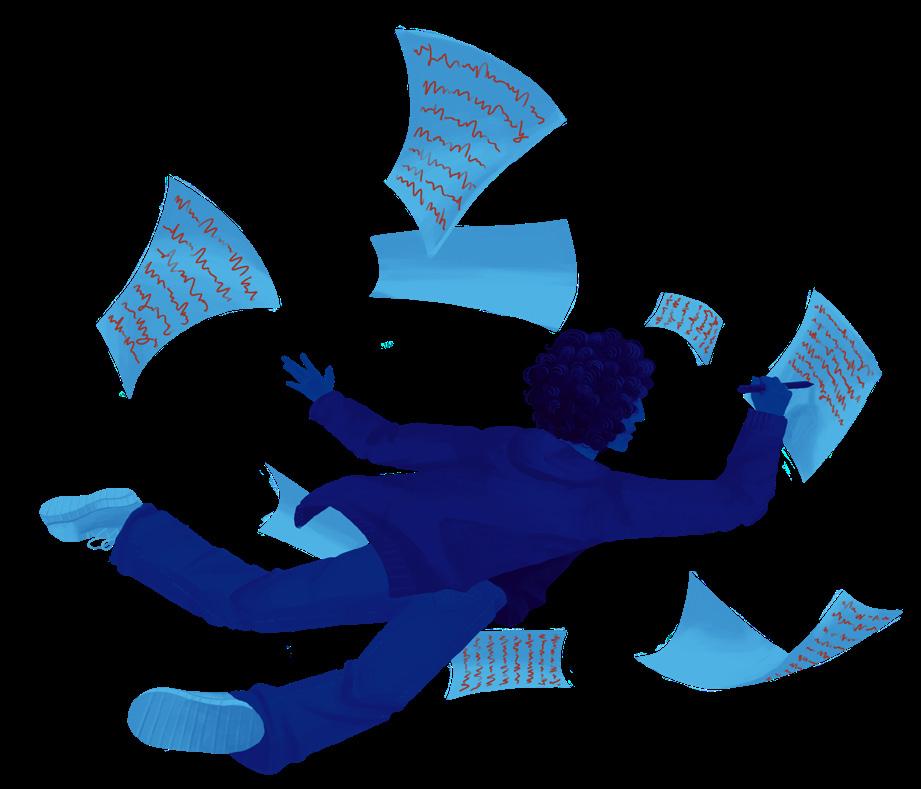
Lowell’s Vicci Center, otherwise known as the Col lege and Career Center is often overflowing with stressed stu dents working on applications and seeking out help. The cen ter is open to all students to learn more about their options after graduating. The Vicci Center has been led by Lowell’s only college counselor, Maria Aguirre, for the past five years. While the center is accessible to everyone, Lowell’s massive student population, including a senior class of around 700 seniors restricts students from getting help every day. “The center has become very busy, with students popping in when ever they can to ask questions,” Aguirre said. During the fall semester, Aguirre has her schedule jam-packed with seniors ready to hand over their essays, create college lists, and de termine the college that’s best for them. However, Aguirre is only one person. “I’m so glad more students are coming to me for help, building those relationships early, but it can be overwhelming sometimes,” she said.
As a first-generation student herself, Aguirre knows the challenges they face, and wants to help as much as she can. “I think sometimes, one of the most challenging things is Lowel lites are really so busy, and the dead lines are coming, so start as early as you can,” she said. Nonetheless, she still pro vides aid whenever she can for first-genera tion students, offering workshops to help families fill out FAFSA forms, as well as workshops for personal statements.
Lowell also offers AVID, a program that aims to close the opportunity gap for students and help them succeed in their classes. The course helps students build skills for the fu ture, including resume writing, note taking, and mock inter views. For seniors, the AVID course called “Senior Seminar” offers in-class time to work on personal statements, plan field trips to colleges, and motivate seniors to have a comprehen
“I don’t know what expectations I need to follow for my applications or what I can be doing to make it easier for myself.”
sive list of schools. Led by algebra teacher Ian Knight, stu dents have more access to resources at Lowell, and are offered guidance from Knight and other AVID teachers. “The great thing about AVID is that seniors have more resources; they meet with their counselors more often,” Knight said. “Ms. Wilson comes and meets with students once a grading peri od, and we provide college tour field trips.” Tilahni Hunkin, a first-generation senior, joined the class this year and appreci ated the in-class time to work on applications. “The class has helped me reflect on myself and what I should be writing,” Hunkin said.
Though AVID is open to all students, many don’t use this resource because they are either unaware of the program or are unmotivated to join after their freshman year. To join, students must undergo an interview and fill out a question naire that gauges their academic goals. Teachers then deter mine who wants to become a better student. “The evaluation of students determines who joins because they want to im prove, and who joins because their parents want them to,” Knight said. This process is complicated for students, espe cially those who don’t immediately join as a freshman. During the summer before freshman year, AVID sends out brochures to prospective students, inviting them to join. To those who didn’t receive a brochure, they must ask their coun selor to be added to the class. “When I received my brochure, I thought AVID was just to help students take better notes and be come more organized,” Nogales said. “I would’ve joined AVID if I knew they helped with college during my junior year. But after freshman year, you never hear from them unless you joined originally.”
Lowell’s introduction to college begins in freshman year, with Plan Ahead. Plan Ahead is a program that replac es the traditionally offered College and Career class offered at most high schools. Freshman-year teachers are required to integrate assignments that help students prepare for their future into their existing curriculum; Plan Ahead is not a sep arate class. Students are assigned to write resumes, calculate taxes, and complete a special project for their VPA or lan guage class. Along with these lessons, freshmen are given a packet with required tasks, such as attending a college visit to take notes, research their desired major, and attend a career fair. All assignments and packets are due by the end of the winter semester, and if it is incomplete, students have to take a semester of College and Career in their sophomore year. Though College and Career is offered, students can not sign up to take it, and only those who don’t complete Plan Ahead are enrolled in the class.
Seniors Tilahni Hunkin and Isaak Tejada agree that Plan Ahead was highly ineffective for them. For Tejada, Plan Ahead was his first introduction to college. As a first-gener
ation student, he was determined to get help at Lowell, but immediately thought Plan Ahead was very disorganized. The fast-paced program combined one semester’s worth of knowl edge into three packets of work, one college visit, and one ca reer fair. “Plan Ahead was an afterthought for most freshmen; we just knew we had to get it done,” Tejada said. Due to its strict deadline, many students would hastily complete the as signments, and wouldn’t think about college again until their senior year, according to Tejada. “The only thing I can recall from Plan Ahead was the college visit, but none of the ac tual information that was given about applying and picking colleges,” Hunkin said. Lowell continues to make Plan Ahead mandatory for all freshmen. “Lowell should offer College and Career as a mandatory course, it would help first-generation students get the dedicated class time they need to work on building their skills,” Tejada said. “Plan Ahead is not a great foundation for freshmen, it won’t help us in the future.”
First-generation students in the Class of 2023 are op timistic about Lowell implementing changes to better support other first-generation students like themselves. “I attend all the workshops that Ms. Aguirre offers, but when I sit in front of my laptop, I still don’t know where to start,” Nogales said. However as of right now, there aren’t any plans to create a pro gram for first-generation students. “More outreach from the college center would be good, since first-gen [students] don’t know who to turn to,” Hunkin said. Moreover, anonymous first-generation students suggested more advertisements for workshops, mandatory check-ins, and offering time in classes to work on applications, because they’d feel unprepared with what is currently offered.
As November approaches, seniors are continuing to figure out what they want to do after graduation. For first-gen eration students, they are attempting to navigate the process without the resources they need. “First-generation students aren’t getting the help they need,” Nogales said. “Lowell is fail ing us.”



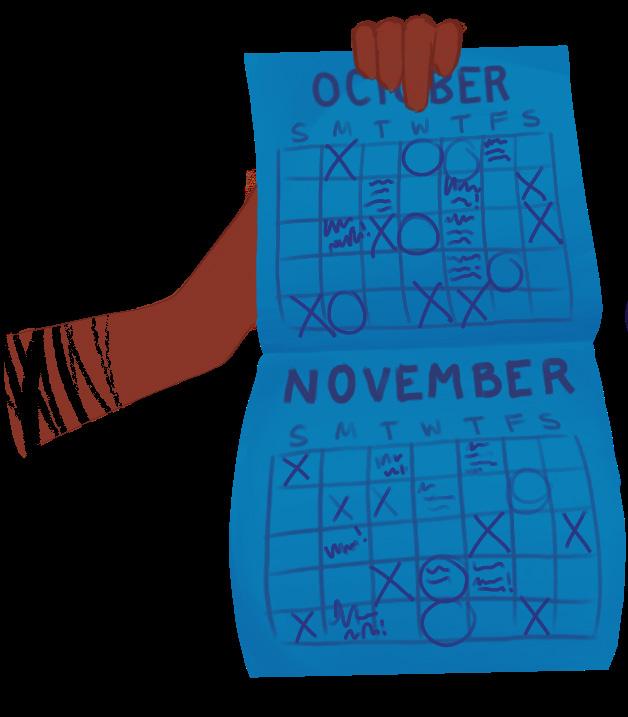
“Plan Ahead is not a great foundation for freshmen, it won’t help us in the future.”

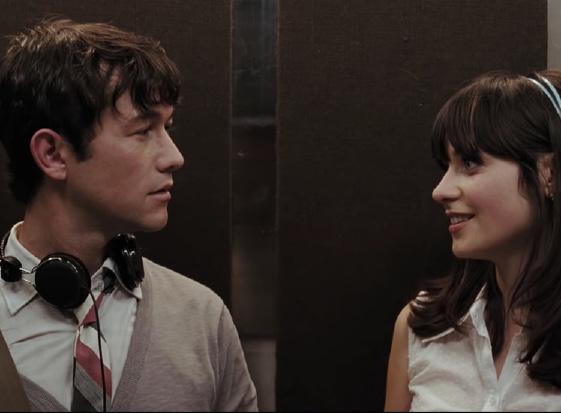
Love stories are not supposed to start on the night of a break up, but Marc Webb’s film, 500 Days of Sum mer, does. This abrupt heartbreak scene puts a magnifying glass on how painful relationships can still be worthwhile.
Over the course of the movie, the main character, Tom Hansen, is reflecting on why Summer Finn, the woman he loves, broke up with him. As their paths intertwine, we see that neither should en tirely be blamed for the natural, realistic process of how re lationships work. They’re flawed people, fumbling with their emotions and ideas about love. Tom grew up believing every thing would fall into place once he found the one, due to his misinterpretations of British pop music. In contrast, Summer can’t fathom the idea of ever settling down after the emotion al trauma caused by her parent’s divorce. It’s an oddity that despite these contradicting perspectives, the two still became attracted and found comfort in one another until they were left to face the reality of having no future together.
I kept rewatching the movie over and over again to catch the subtle details that foreshadowed their breakup. There was one scene where Tom and Summer pretended to be a married couple in IKEA home displays. Throughout that scene, Tom didn’t realize he was becoming obsessed with the fantasy of Summer becoming a loving, settled-down wife, in stead of accepting the person she told him she was: an un committed person who can’t see herself being someone’s wife. When rewatching the movie, I realized Summer wasn’t the villain. Summer cares about Tom, but she knows he is not who she needs in her life.
I felt emotionally conflicted while watching them grapple with their feelings and connected with Summer espe cially when she didn’t know where to go in her relationship. When they were fully broken up, it became clear why they didn’t need each other and could form healthier relationships with people better suited for them. While they may not have been good for each other, they were able to learn from their relationship and accept the changes of life, even when it took 500 days.

 by MARHSALL M USCAT
by MARHSALL M USCAT
The Smile had a reputation to uphold when they re leased their debut album, A Light for Attracting Attention, and they did just that. With the inclusion of two members from the iconic ’90s band Radiohead, The Smile delivers a sense of nostalgia and curiosity through their songs. The 13-track album stands out like a piece of abstract art, intro ducing waves of new sounds.
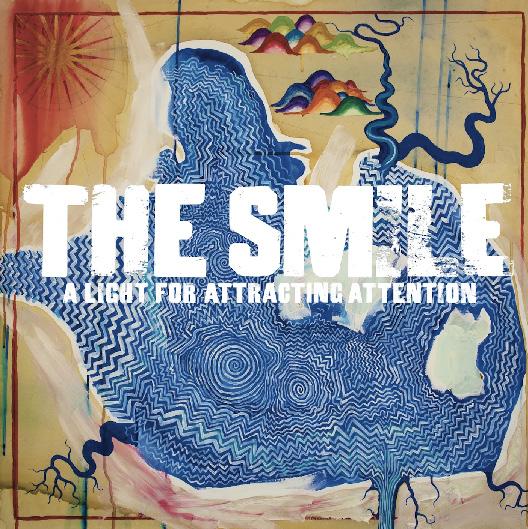
“Experimental” is a word that’s been used to describe Radiohead in the past, and now translates well to The Smile. Lead singer Thom Yorke’s skill with his unique voice makes any song that he sings instantly recognizable. He understands that a voice can be used as an instrument and that vocals are more than just a way of conveying lyrics. This is demonstrat ed in the song “The Opposite,” with sounds that layer and bounce off of each other.
The Smile’s similarity to Radiohead, although initial ly distracting me from the new content itself, ended up feeling nostalgic. The album was powerful enough to make it feel like I was listening to Radiohead for the first time again. It is simi lar enough to not feel disconnected, but still provides enough new material to keep me engaged.
The album is most successful with the way it gives me multiple ways to listen to it. The presence of jazz brings out an interaction of instruments and sounds waves in a mu sically calculated way. I have layers to sift through while lis tening, allowing for a surface-level listen or a deeper dive into the individual components of the instrumentals and vocals. The use of an unorthodox combination of instruments lead the album to carve out its own genre.
The Smile brings out a new combination of mu sical interactions in a successful way, even as it follows an estab lished legacy. Being groundbreakingly new after coming from Radiohead is a nearly impossible task, yet A Light for Attracting Attention delivers a fascinating way to find some thing different.

Summarizing “Everything Everywhere All At Once” is a near impossible task, but this text from my friend almost sums it up: “It’s, like, sci-fi and parallel universes, but also cultural stuff.” It tells the story of Chinese immigrant Eve lyn, who uses her newfound powers of interdimensional travel to embark on a mission to save the world. I went into the movie with high expecta tions, as critics lauded the unique but touching nature of the movie, but came out disappointed.
One of the movie’s strengths is its excellent portrayal of an immigrant family struggling to navigate major cultur al differences, which manifests in Evelyn and her daughter Joy’s rocky relationship. Evelyn uses her father’s traditional, old-fashioned nature as an excuse to not accept her daughter’s gay identity. Authentic moments of miscommunication, cul tural division, and existential crises ensue.
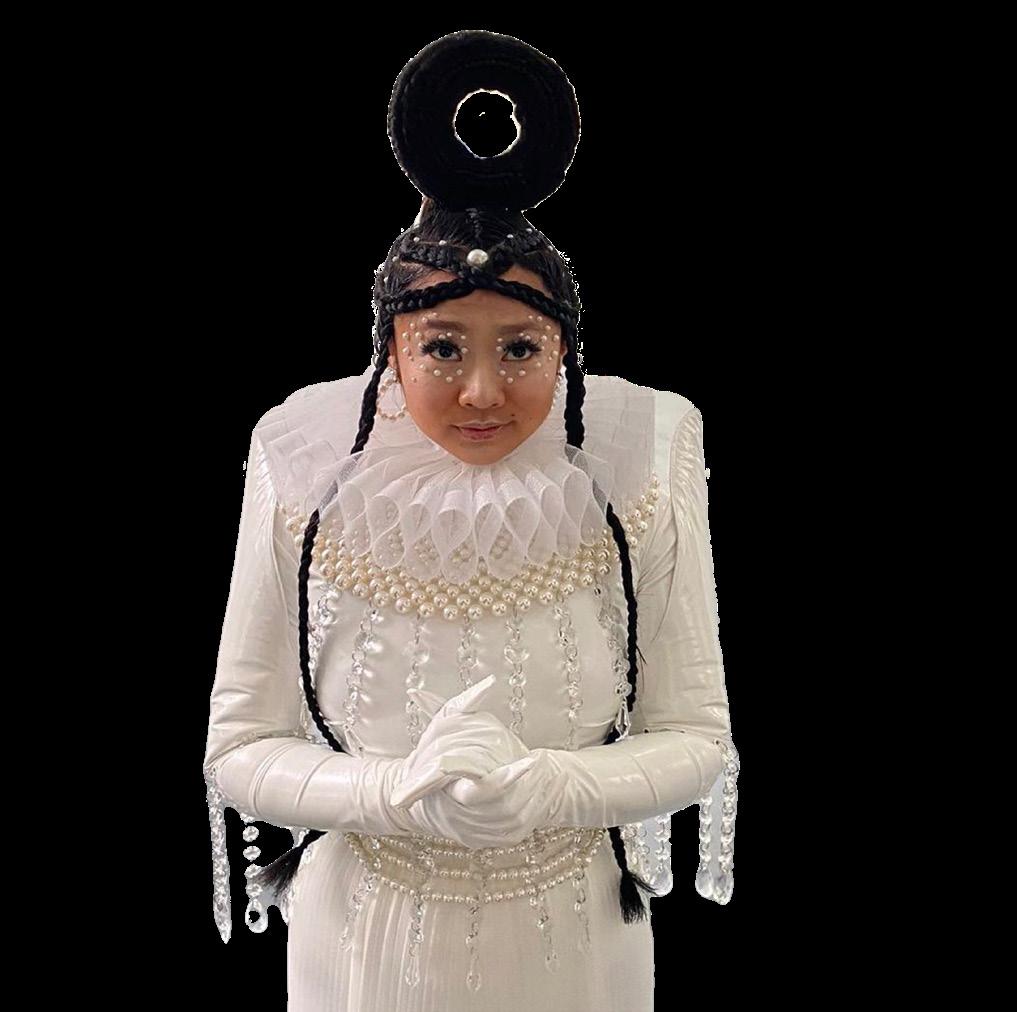
On the other hand, sillier scenes detract from the emotional depth of the movie. Suddenly, Evelyn is transport ed to worlds where humans have sausages for fingers and people gain martial arts skills by sticking objects up their asses. These scenes, although amusing to juvenile audiences like my little brother, feel out of place in a movie acclaimed for its emotional depth. Every time Evelyn and Joy try taking steps towards mending their relationship, they’re yanked into another world with lasers, glitter, or something equally ab surd. The emotional aspects of the film feel inauthentic and unearned, thrust into the plot for the sake of touching audi ences.
The mad succession of events also contributes to a lack of suspense in the film. Every sequence of silly, conse quence-free activity instantly getting mit by a switch into another universe means nothing is actually at stake, and I didn’t myself becoming truly invested in any storylines or conflicts as a result. Simple awe factor can only carry a film for so long, and the rap id succession of events begins to feel tiring. There is no buildup, no time to contemplate characters’ struggles; from start to finish, the movie is action-packed whirlwind. some, this quick pace may be appealing, but to me, it was a distraction.
I sobbed the first time I read erie. Sitting in my AP Literature class, I frantically began switching tabs from the PDF, a failed at tempt to suppress the tears welling in my eyes. The story is one of loss, fear, and anger wrapped up into a whimsical tale of childhood magic. I’m a victim of Ken Liu’s writing, and it has left me in emotional shock.
“The Paper Menagerie” is a short story following a half-Chinese boy, Jack, and his experience being raised in a Asian-American house hold. It’s an endearing piece dis cussing identity, racial insecurity, and growing up, a combination I heavily relate to.

I discovered parallels be tween Jack’s sentiment towards his Asian culture and my own. Reading how Jack forced his mom to speak English made me cringe. My heart panged when he asked his dad if he had “ch*nk” eyes. Although my feelings towards my Viet namese culture were not as harsh, the story exposed my lack of commitment to learning about it. As I progressed through the story, and learned how the older Jack bitterly regretted not cherishing his mom’s background, it inclined me to learn about my Mom’s heritage. Liu lovingly portrays the intersection of culture and family relationships. A key symbol in the story is the moth er’s magical origami figurines, the protag onist’s primary con nection to his child hood and culture. Jack’s mom conveys love through her pa per tigers, a perfect symbol of the indirect affection of Asian par ents, often displayed through food, fruit, and academic praise, but never words. It was captivating to see this accurate repre sentation of Asian maternal love.
The Paper Menagerie is a tragic, whimsical piece captured within a mere 18 pages, yet the emotions it induces have revitalized me.
DESIGN BY ELISE MUCHOWSKI




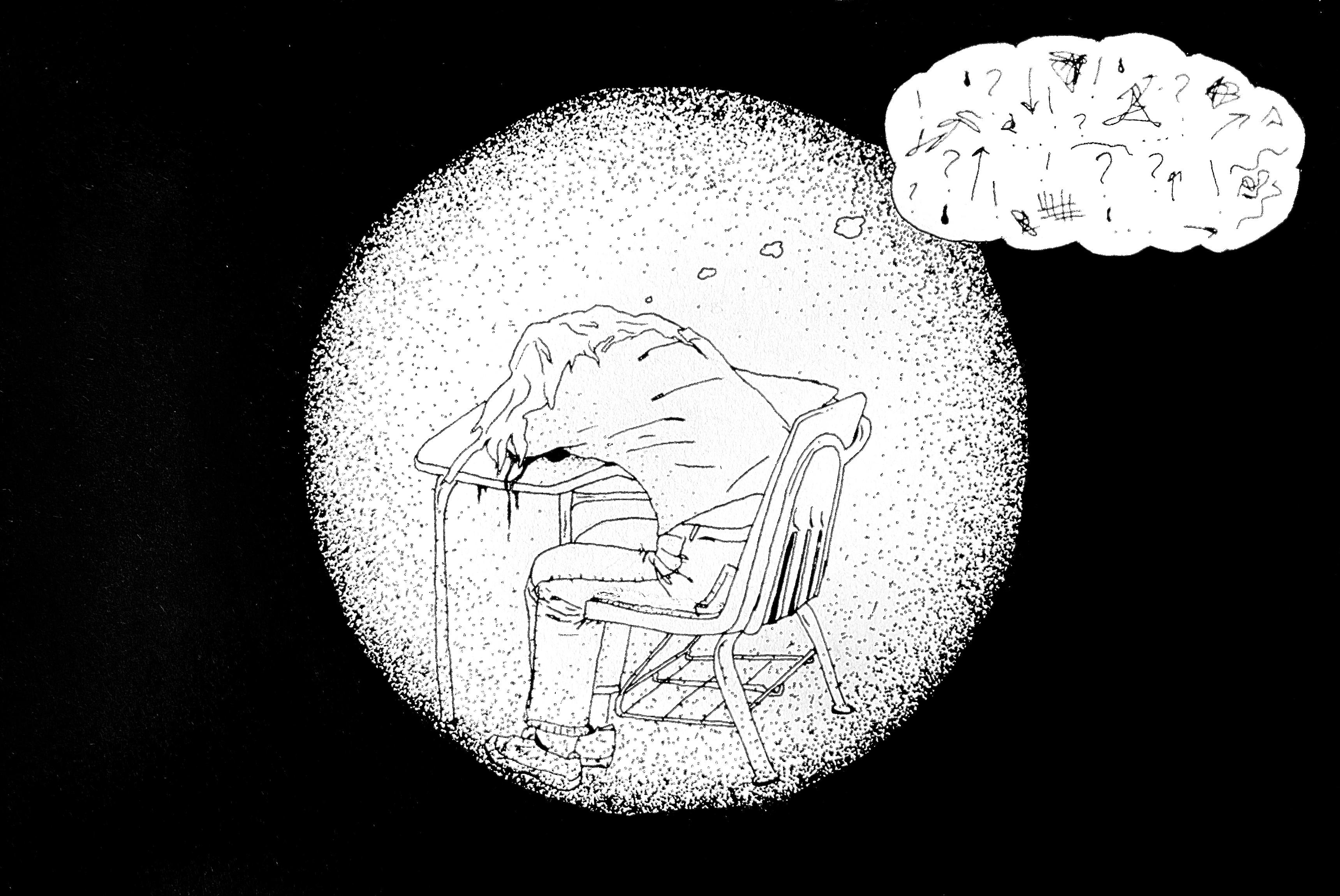
 By Clarabelle Fields
By Clarabelle Fields
SometimesI get this feeling. It starts in my chest and it drops to my stomach and goes down to my toes. It feels like my heart is leaving my body, and I get shivers that give me chills all over. It started when I learned that one of my closest friends, a person I had known since I was nine, had died. It kept happening over and over again the days after. She died in mid August, and after that I had this sick feeling con stantly — no breaks, just over and over again. Like I’m going to puke. So when I go about my days feeling my heartbeat in my chest, all I can think is, HowcansomeoneIlovedsomuch begone?
The next thing that comes to mind is, How the f*ck amIgoingtodothis?HowamIgoingtogotoschoolandsit inclassandnotcompletelyfallapart? I had no idea. It would take weeks and a lot of thinking to find an answer. Grief doesn’t go away quickly. Moving on doesn’t happen over night. It takes time and effort and is incredibly difficult when you have responsibilities like school.


I got the call that my friend died four days before school started. I got up on the first day of school and willed myself to go. I was exhausted from crying for three days, and going to the first day felt like an afterthought. I cried my whole drive to school, and was only able to go to my counsel ors office before I decided to go home.
The next day I couldn’t go to school at all, but the fol lowing day my parents were pushing me to go back, so I went. When I arrived at school I told my first teacher that I missed the last two days because my dearest friend had passed. He was sympathetic and nice, but I didn’t really care; I didn’t care about anything.
I noticed something funny that Friday morning on the third day of school. I didn’t actually feel anything. When I told all my teachers that I had lost someone, I didn’t cry. I mean I got teary eyed, but they weren’t the heavy sobs I had come to expect. I have never wanted to cry so badly in my life. I wanted to feel her presence, I wanted to feel my sad ness, and I wanted to remember her and feel something. But, I just couldn’t feel anything. I knew I was sad and I knew I was hurting — I felt physically sick all the time — but I just couldn’t feel it. So I walked around for the next six days feel ing absolutely nothing.
The next Thursday, after feeling nothing for six days,
I finally felt something. The feeling I had was… sh*t. I felt like sh*t. It felt like my whole body had been run over by a bus and my brain had been run through a meat grinder. I decided to go talk to someone at the wellness center. I ended up crying in a little office for the first time in six days. I liked crying, I had missed the feeling it gave me. I cried so much that I decided to just go home, so I left school at 11. But, I felt like it wasn’t time for me to go home yet.
I was driving past Ocean Beach when I felt a strong urge to pull over. My friend loved the beach. I felt closer to her there. I started to walk down the shore, and I accidentally got my shoes and ankles wet. I thought it was her telling me she missed me, telling me she wanted to see me. I took my wet shoes and socks off, took my jacket off, put away my head phones, and put my phone down. As I looked at the water I remembered all the days we had spent at the beach together. Remembering all those times, I felt like I could just see or hear her laughing in the water. And so, I thought, f*ck it, I’ll justgogether.
I put one foot in front of the other as I walked in to find her. The water was cold. I could feel how cold it made me. I stood there waist-deep in the ocean in my jeans and shirt, and I called for her. I felt the tide pulling me, I felt the sand on my feet, I felt the tears on my face. It’s time to get out, I said to myself. She’s not gonna come with you.
I could feel my life falling apart; I could see every thing I was excited for, everything I had worked for, all com ing down around me. All I could do was watch, I was too tired to fight or get myself up. So I watched and I felt as ev erything was crumbling around me. I could see my grades dropping. I had to drop AP Statistics. I could see my Personal Insight Questions going unanswered. I could see people do ing all these things, accomplishing all their goals, doing what I wasn’t able to do. I was left asking myself, How do I move
I know I can’t bring her back. I know I can’t make her family feel better. I know I can’t make myself feel better. However, I also know that the only thing I can do is move forward. Everyday that passes I move forward. It doesn’t hurt any less, it doesn’t feel better, it doesn’t feel good. But, most days I smile and I laugh and, of course, I cry. Tomorrow the sun will come up, the sun will go down, and I will still be here, loving her.
SPREAD DESIGN BY DYLAN TWYMAN“Moving on doesn’t happen overnight. It takes time and effort and is incredibly difficult when you have responsibilities like school.”
“I wanted to feel my sadness, and I wanted to remember her and feel something. But, I just couldn’t feel anything.”

